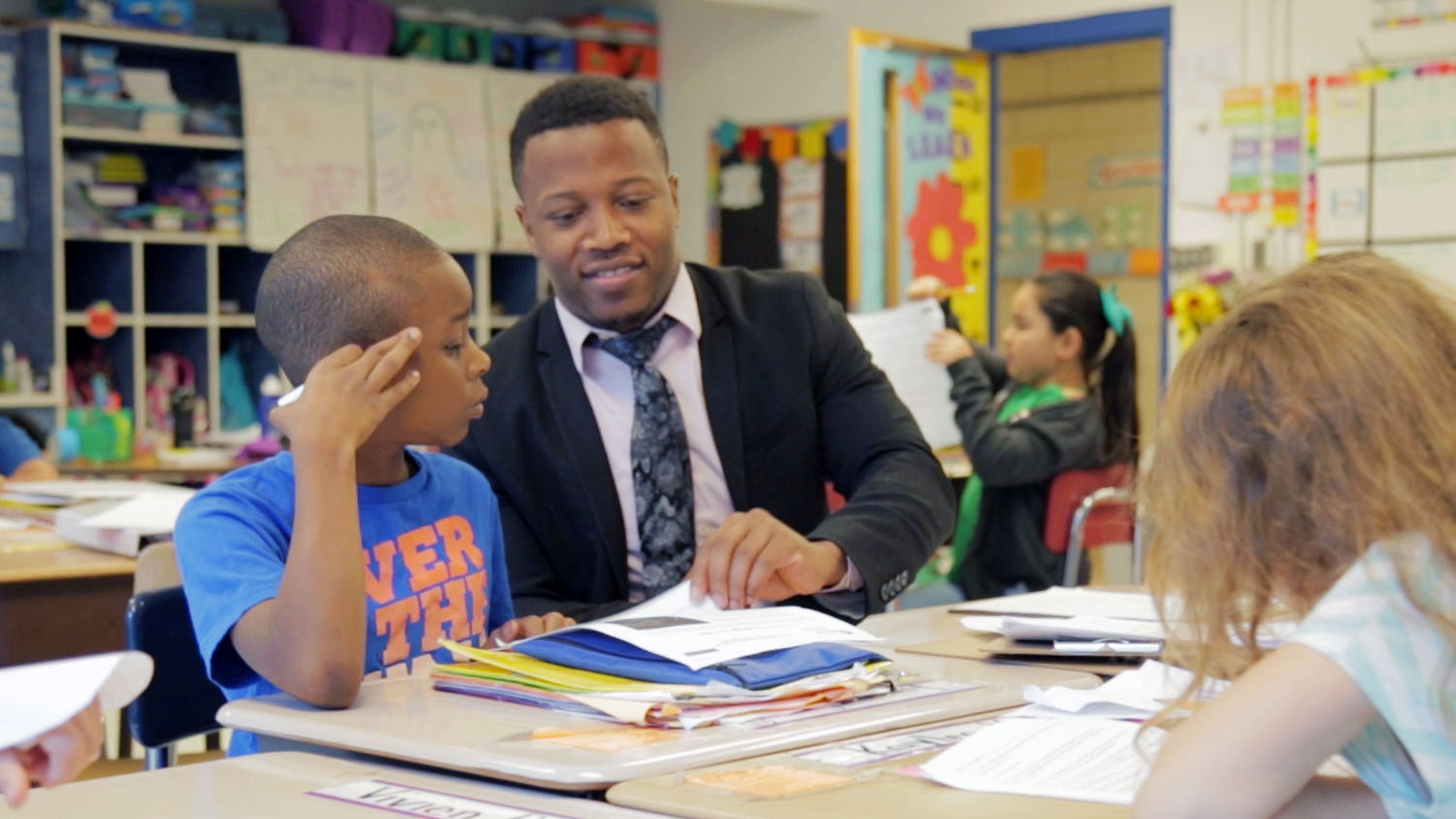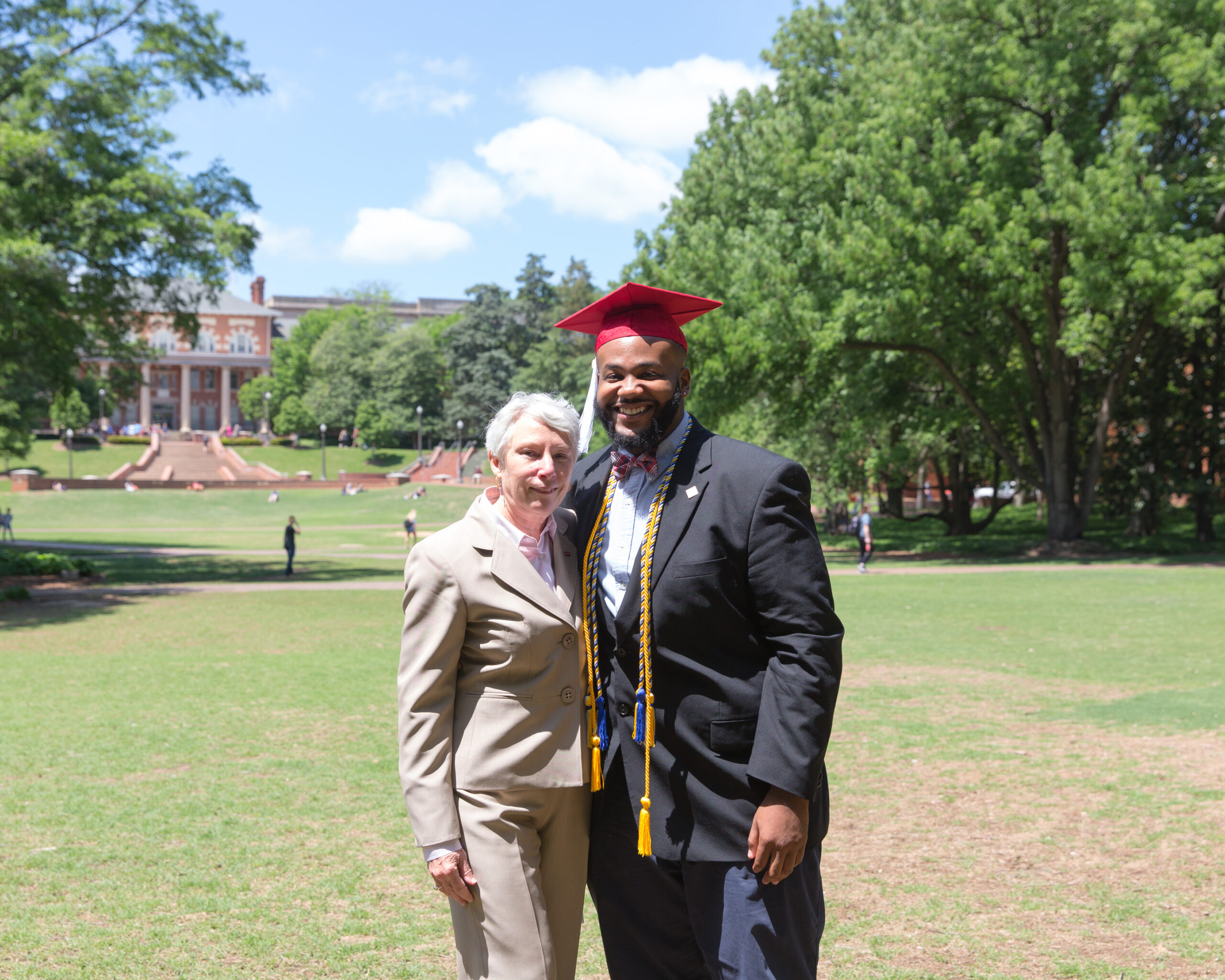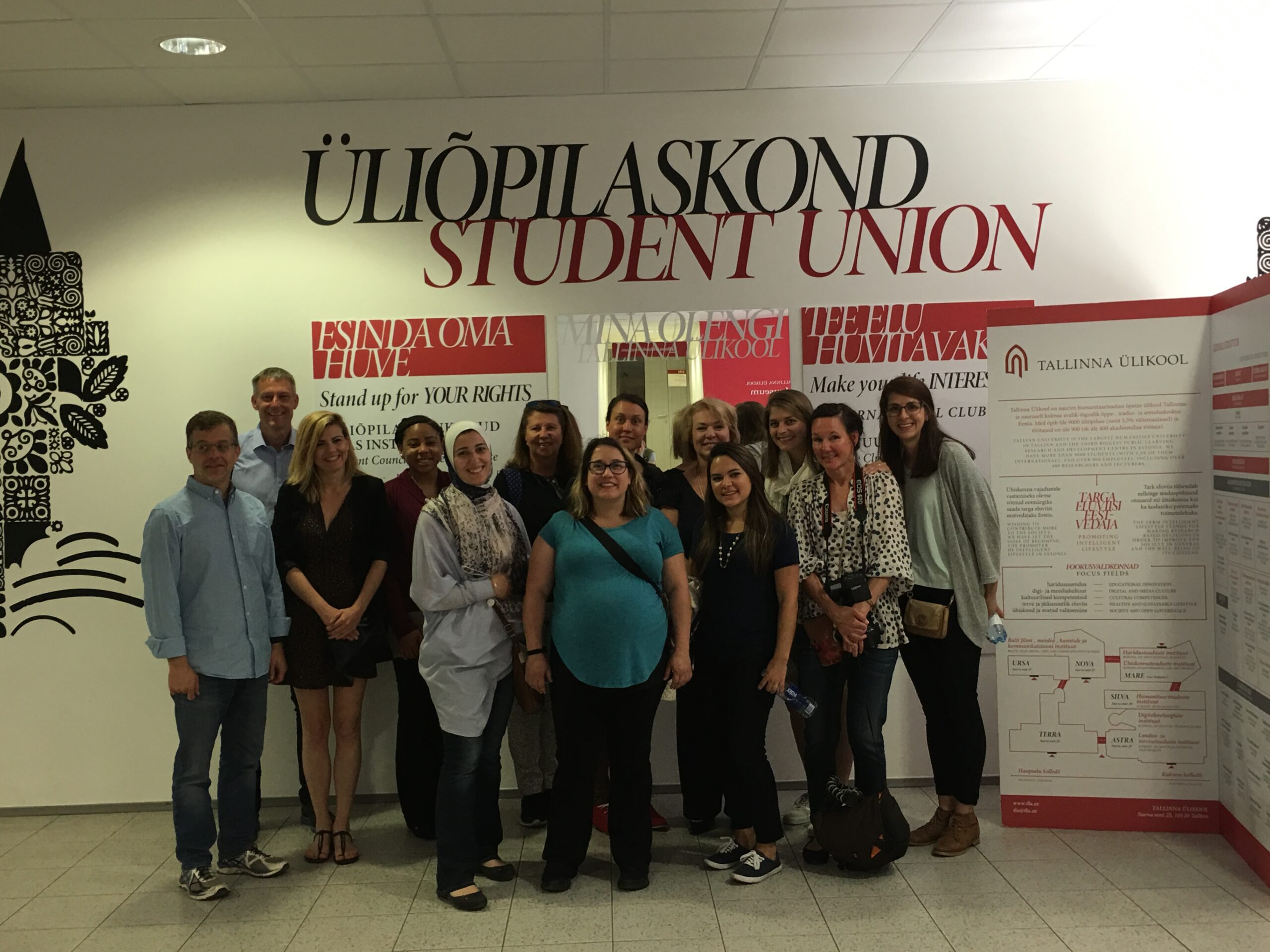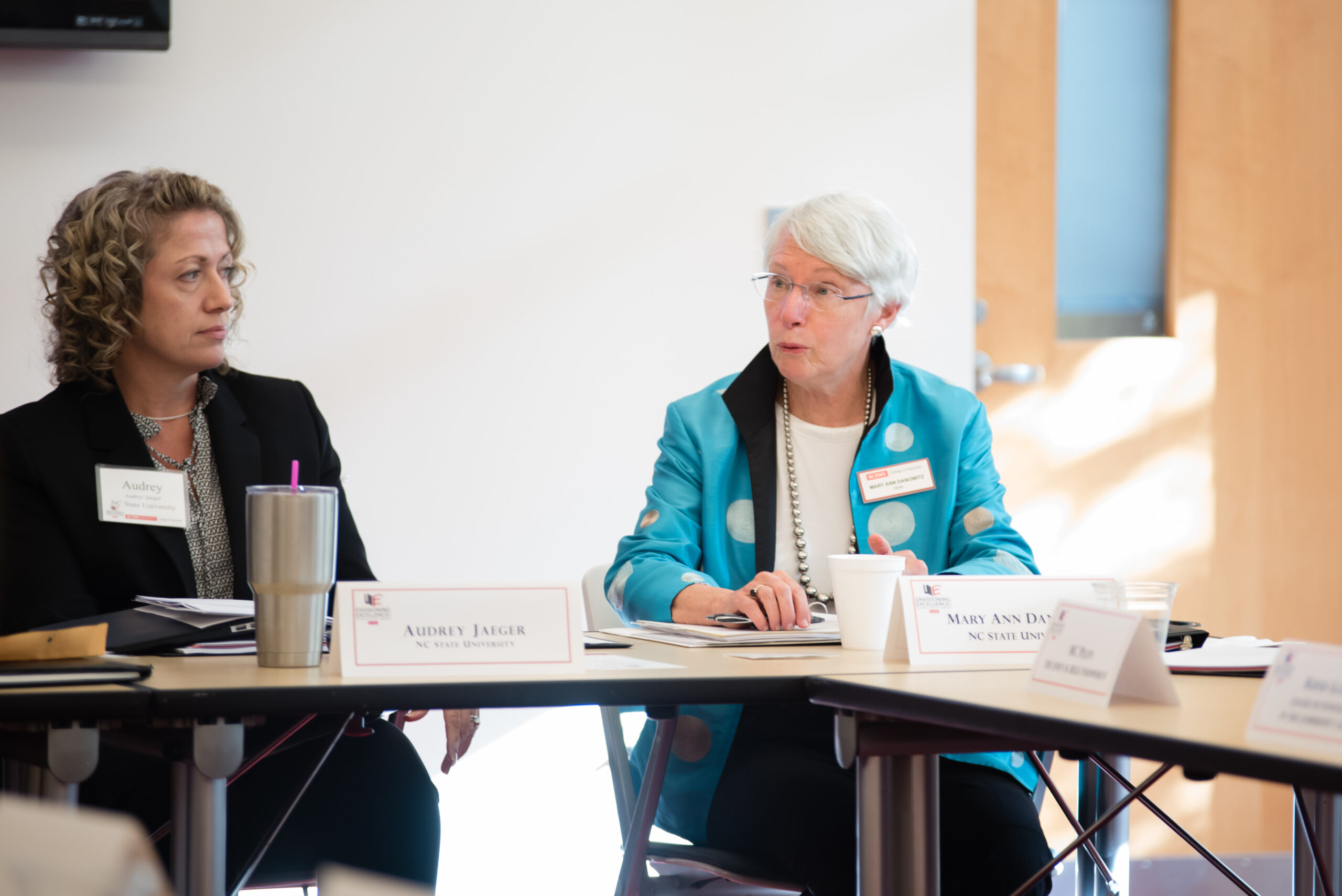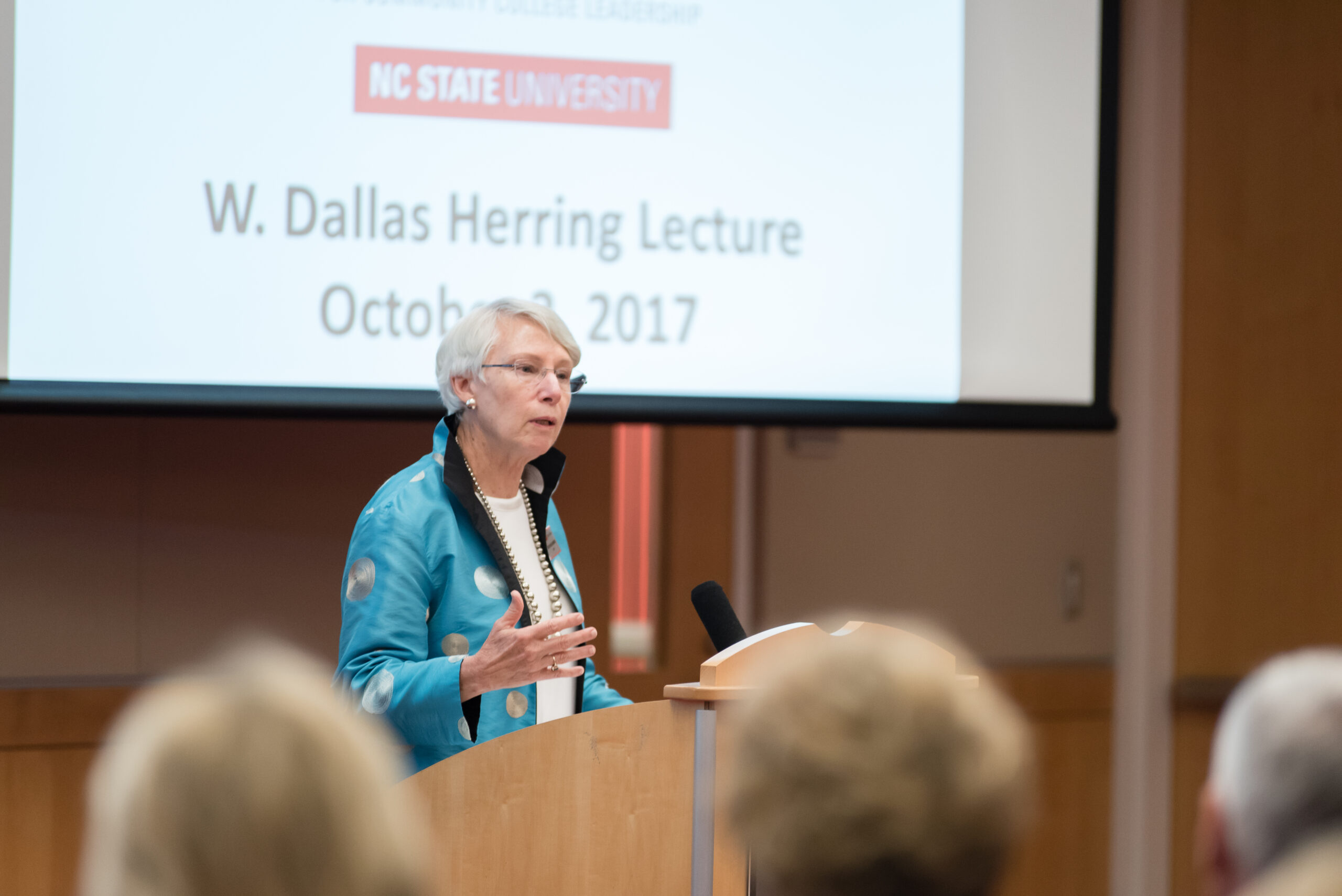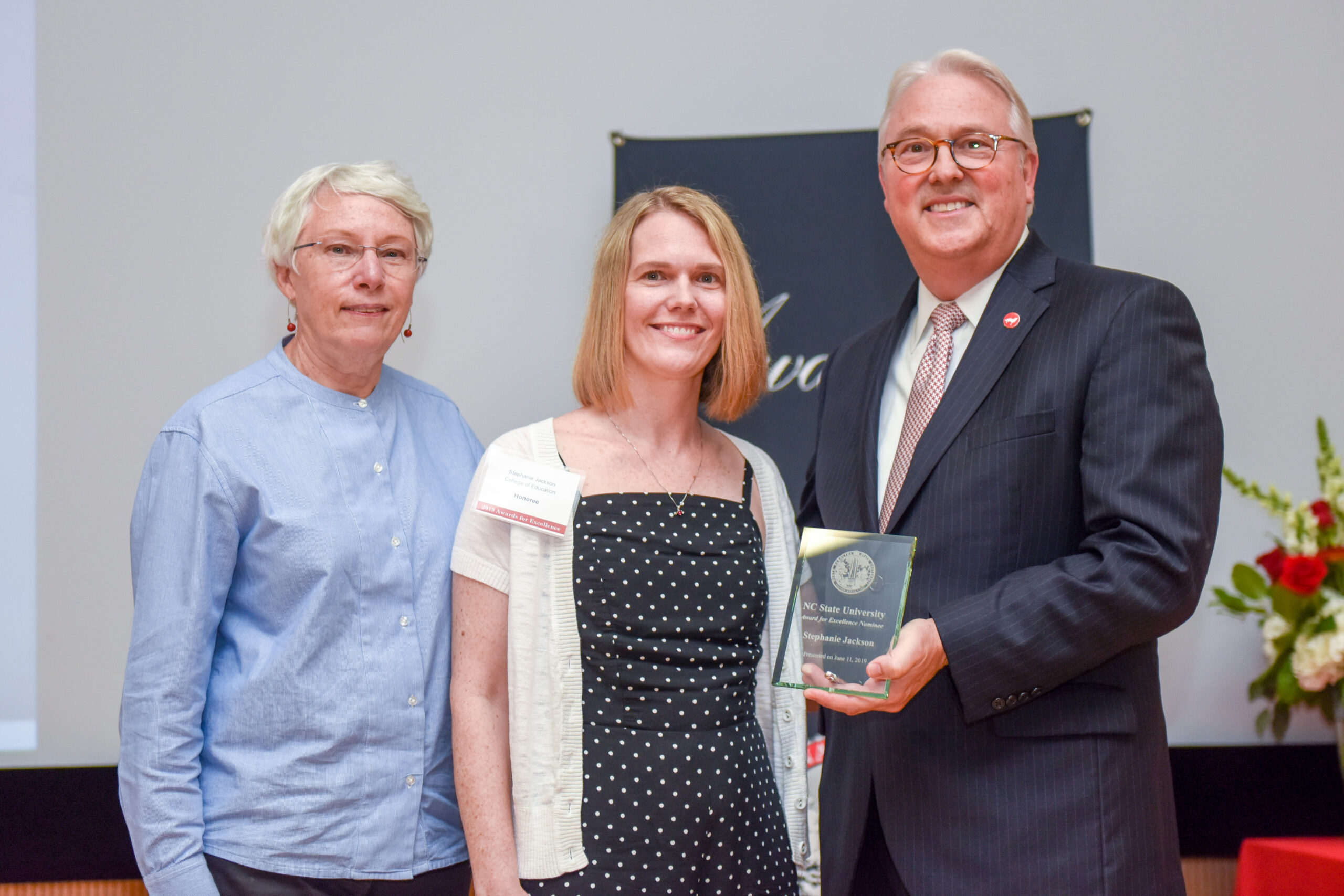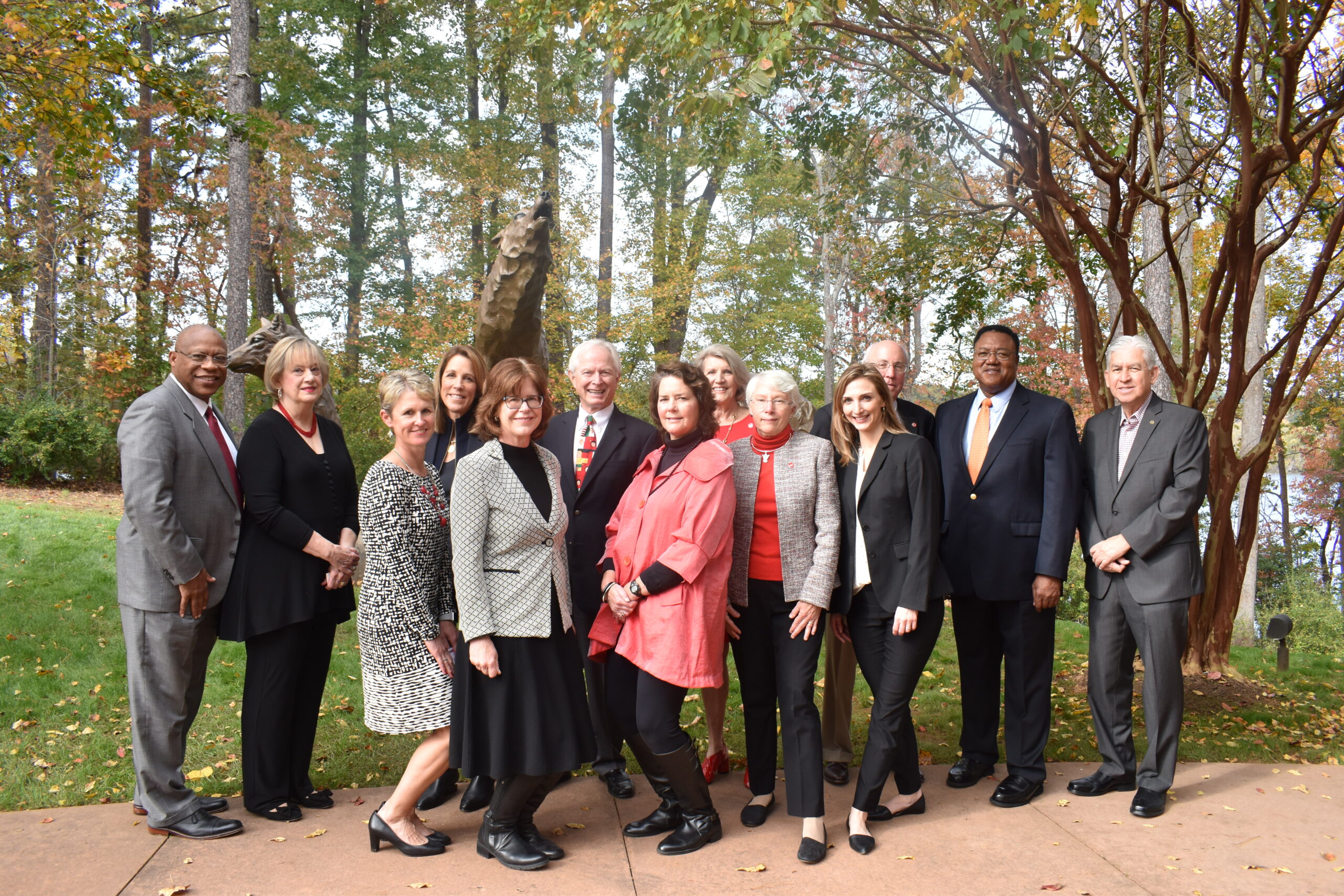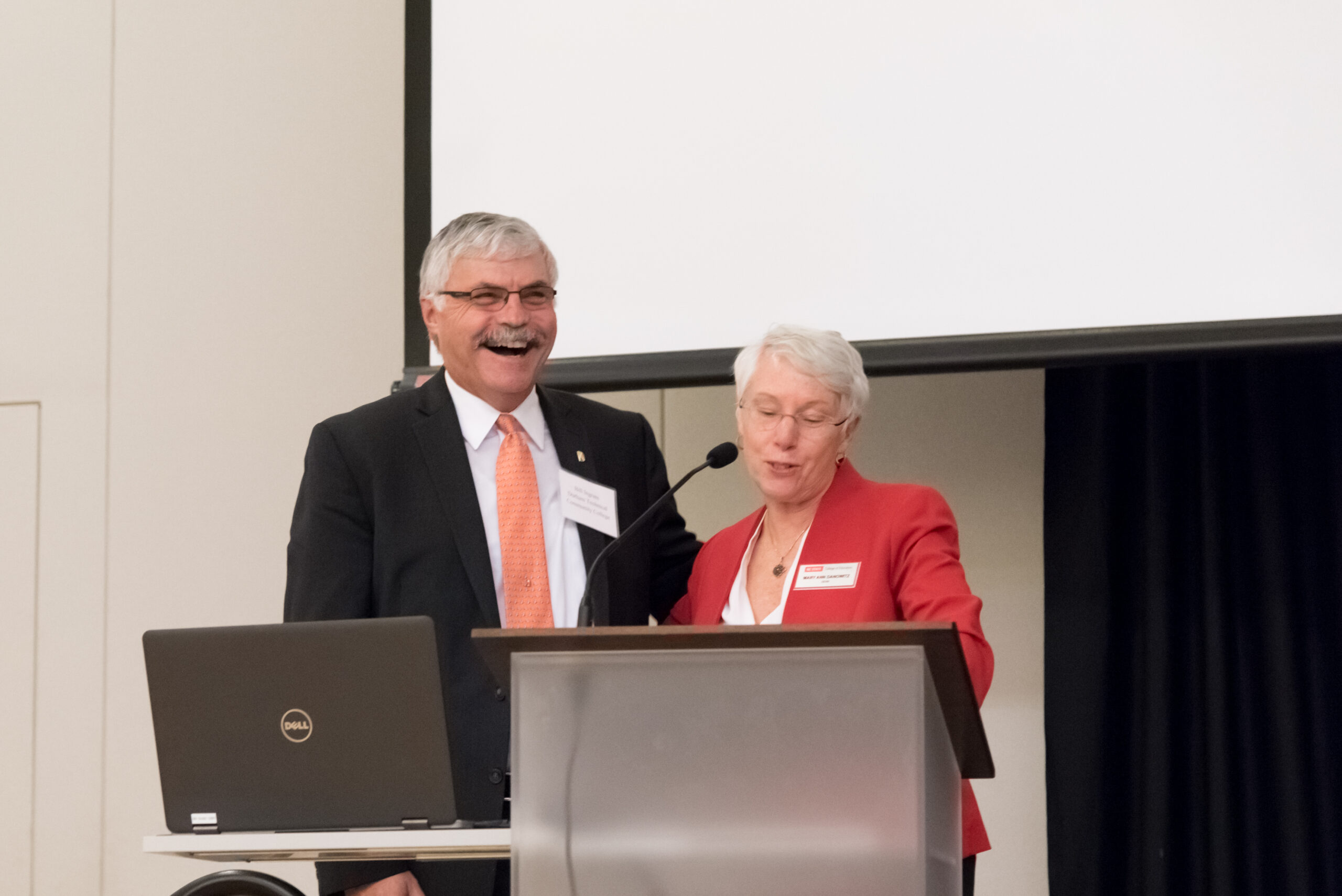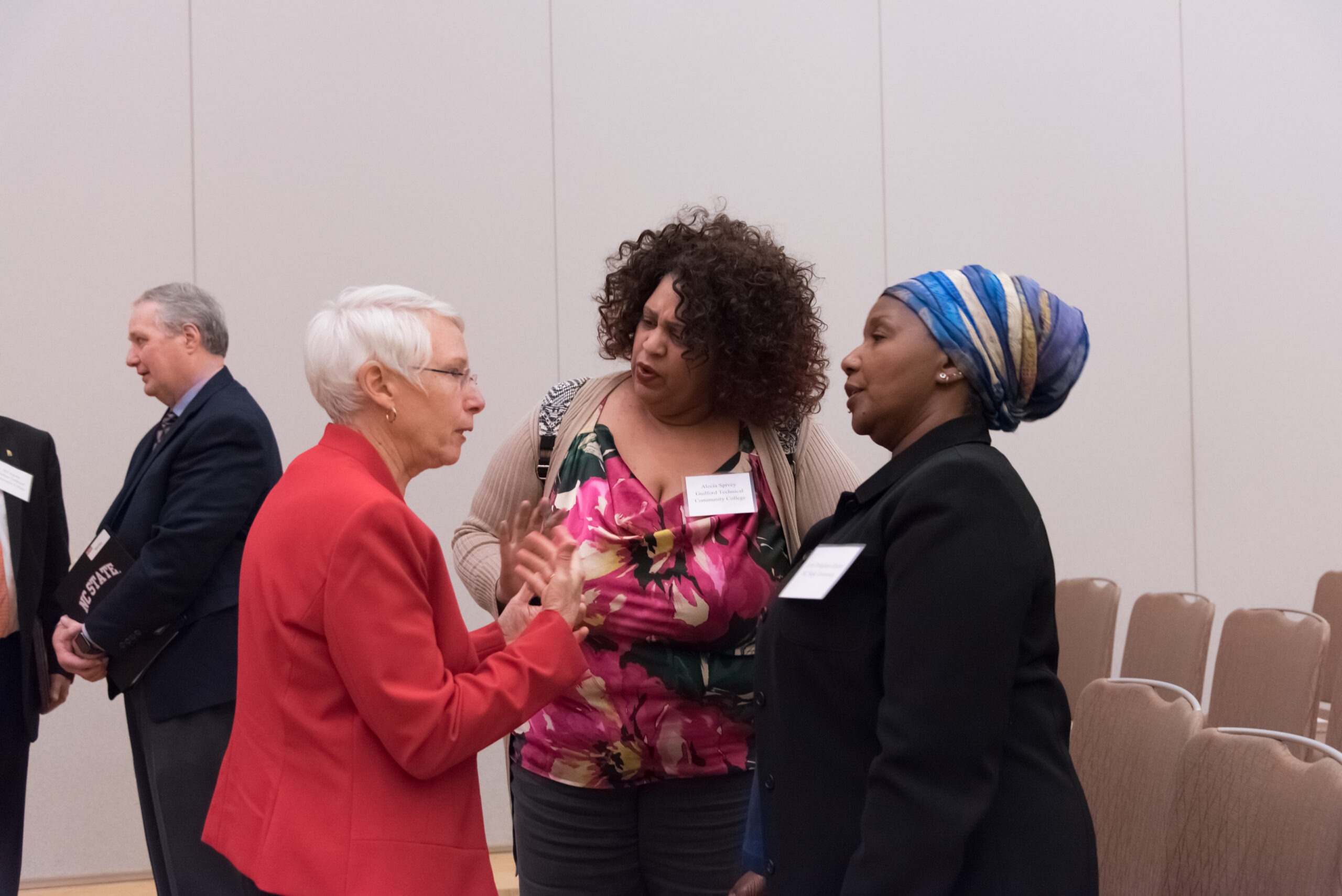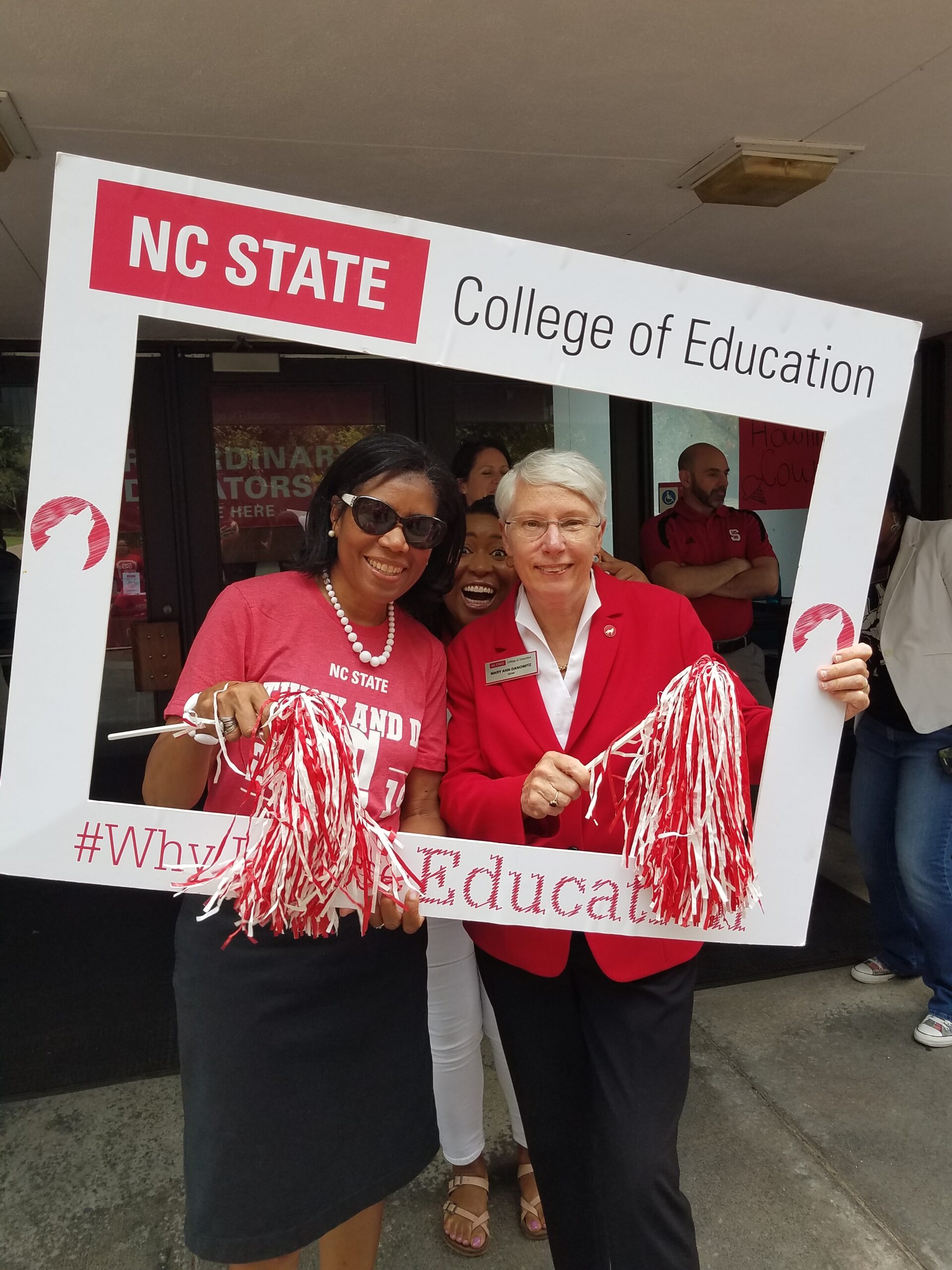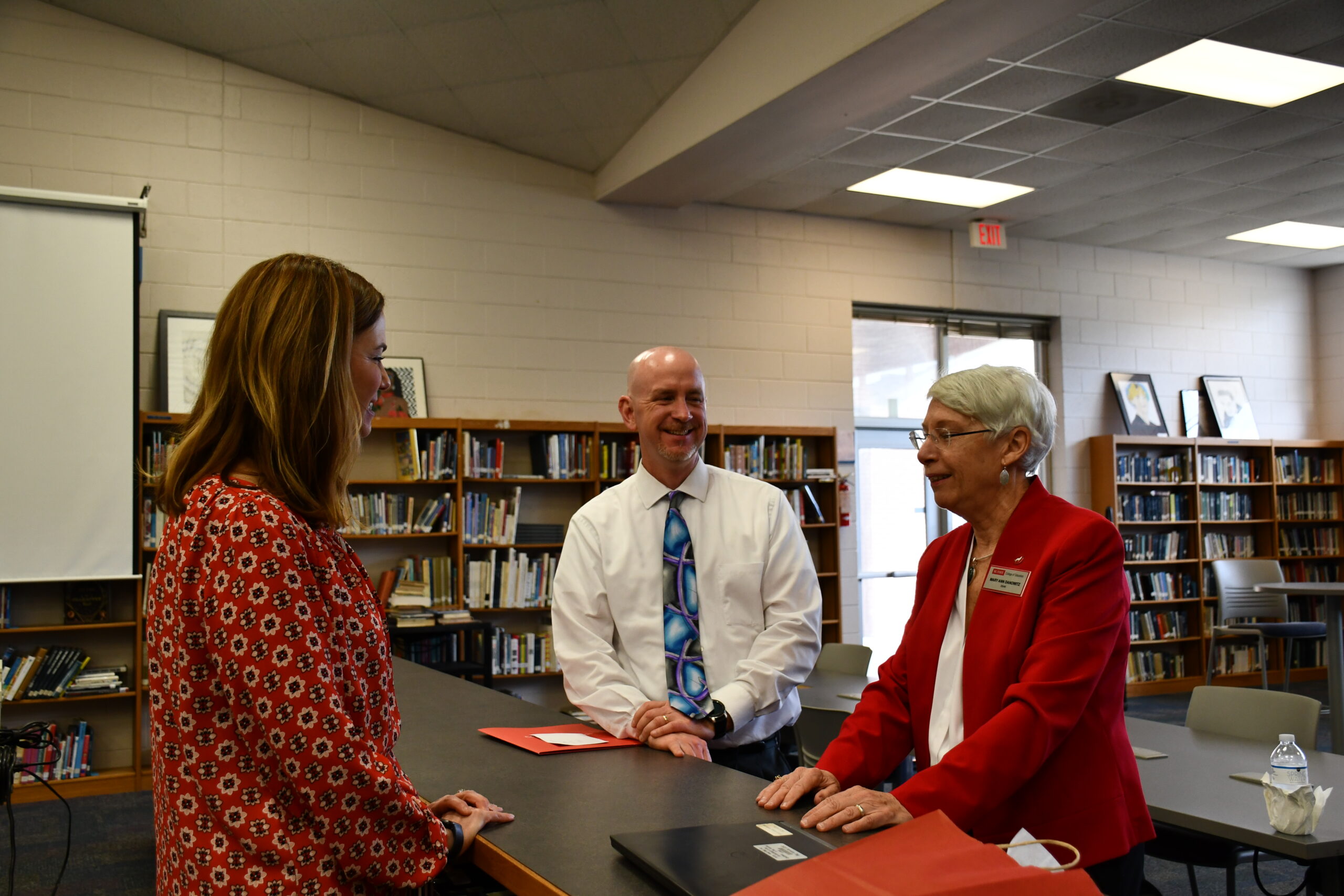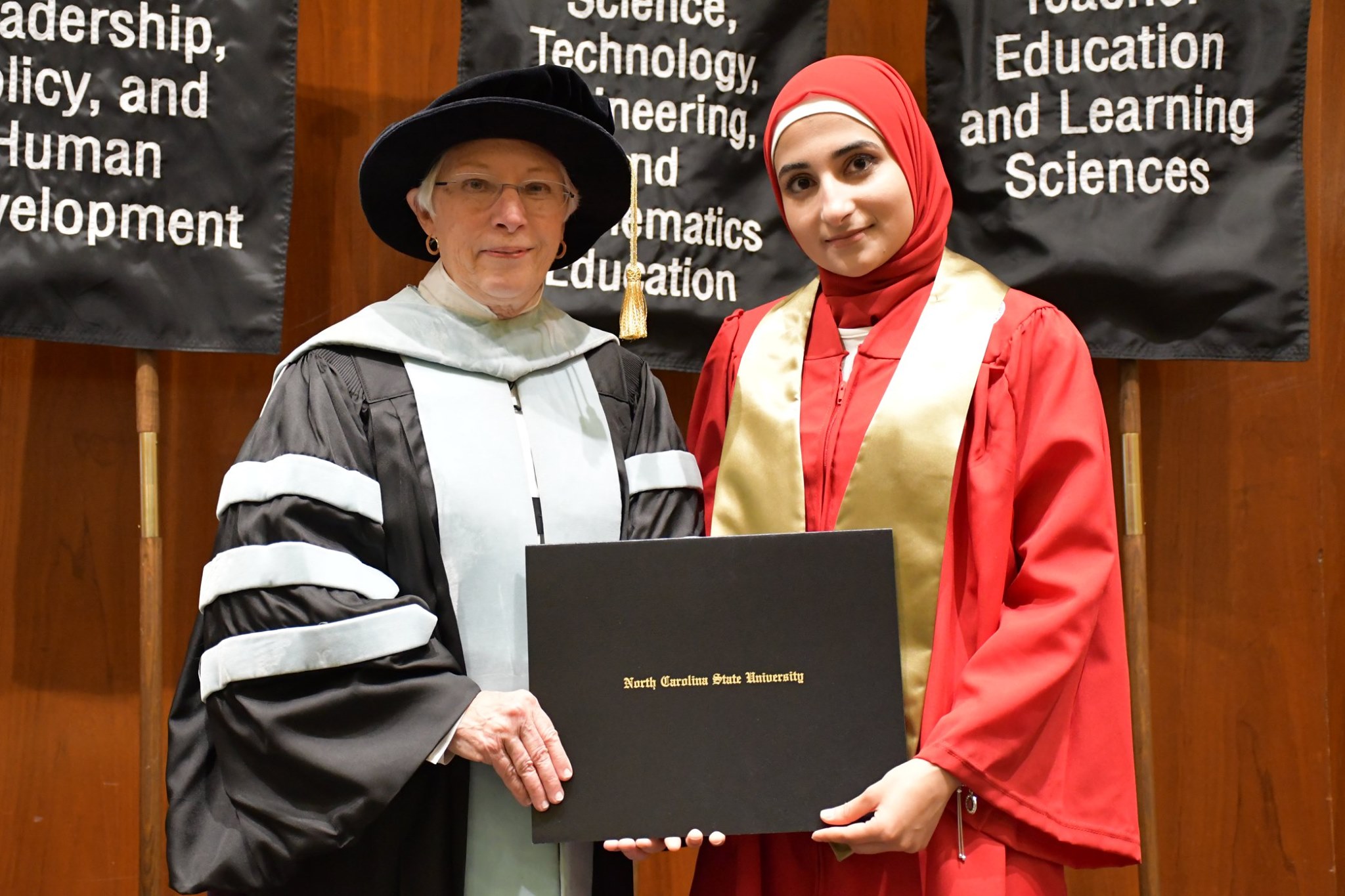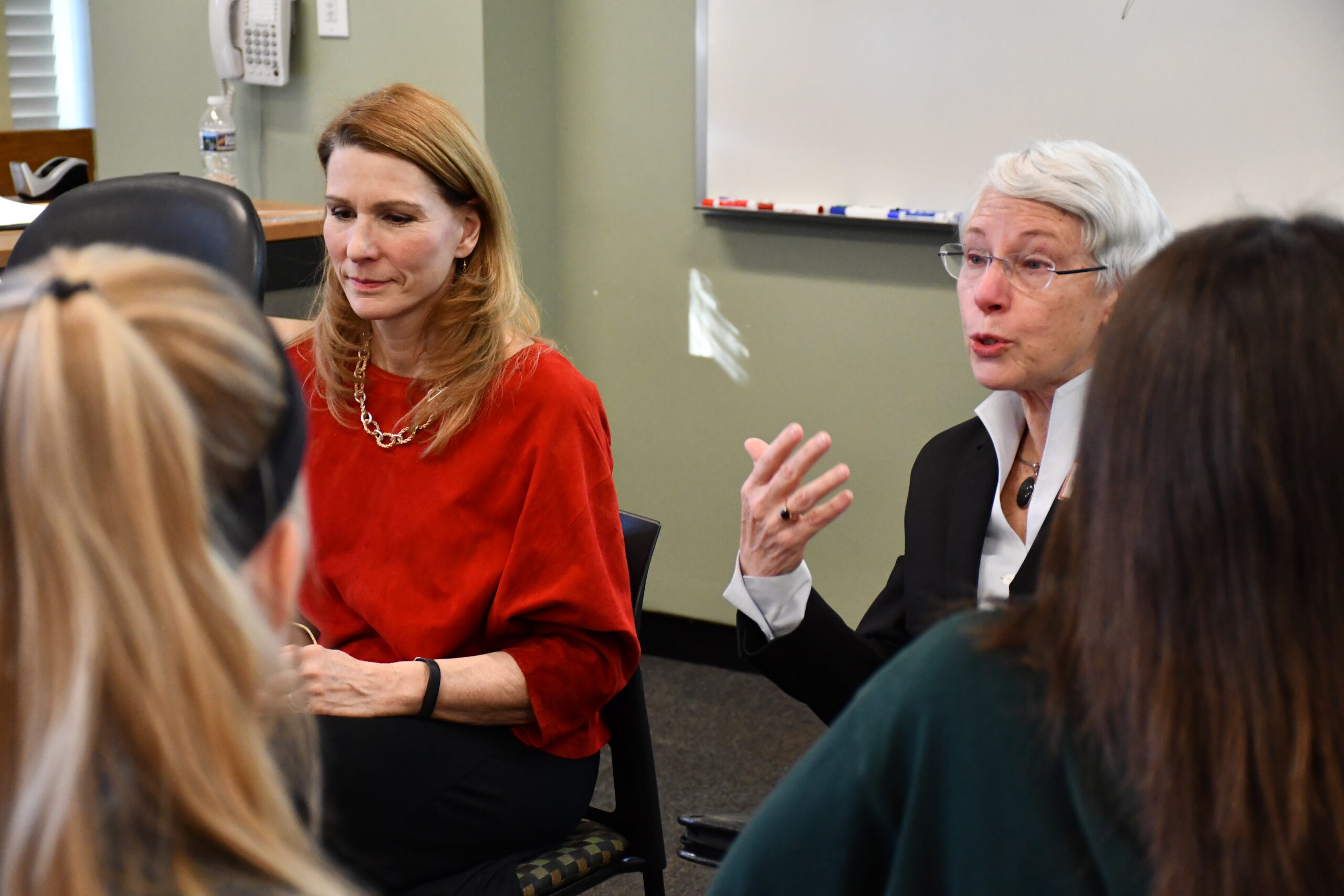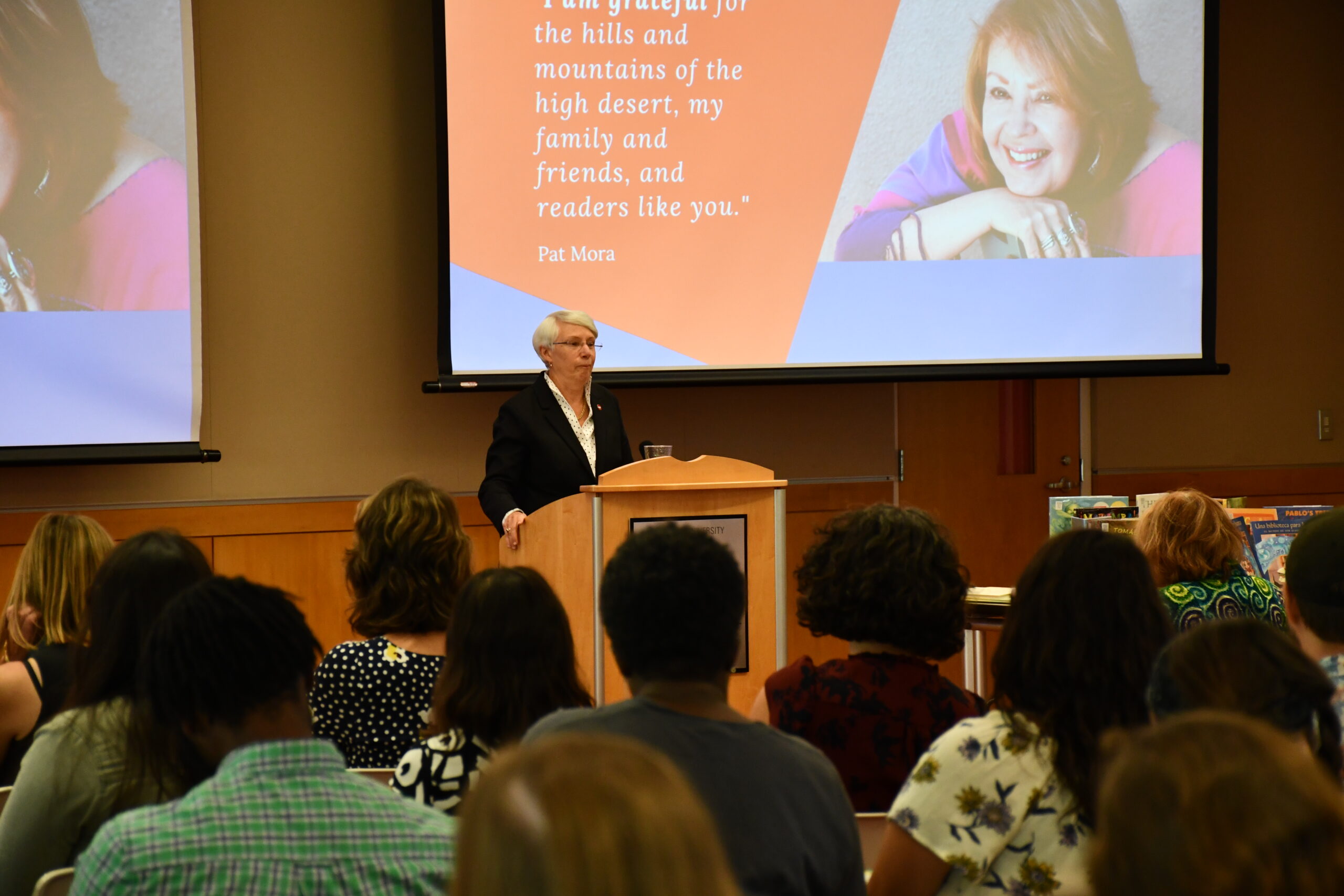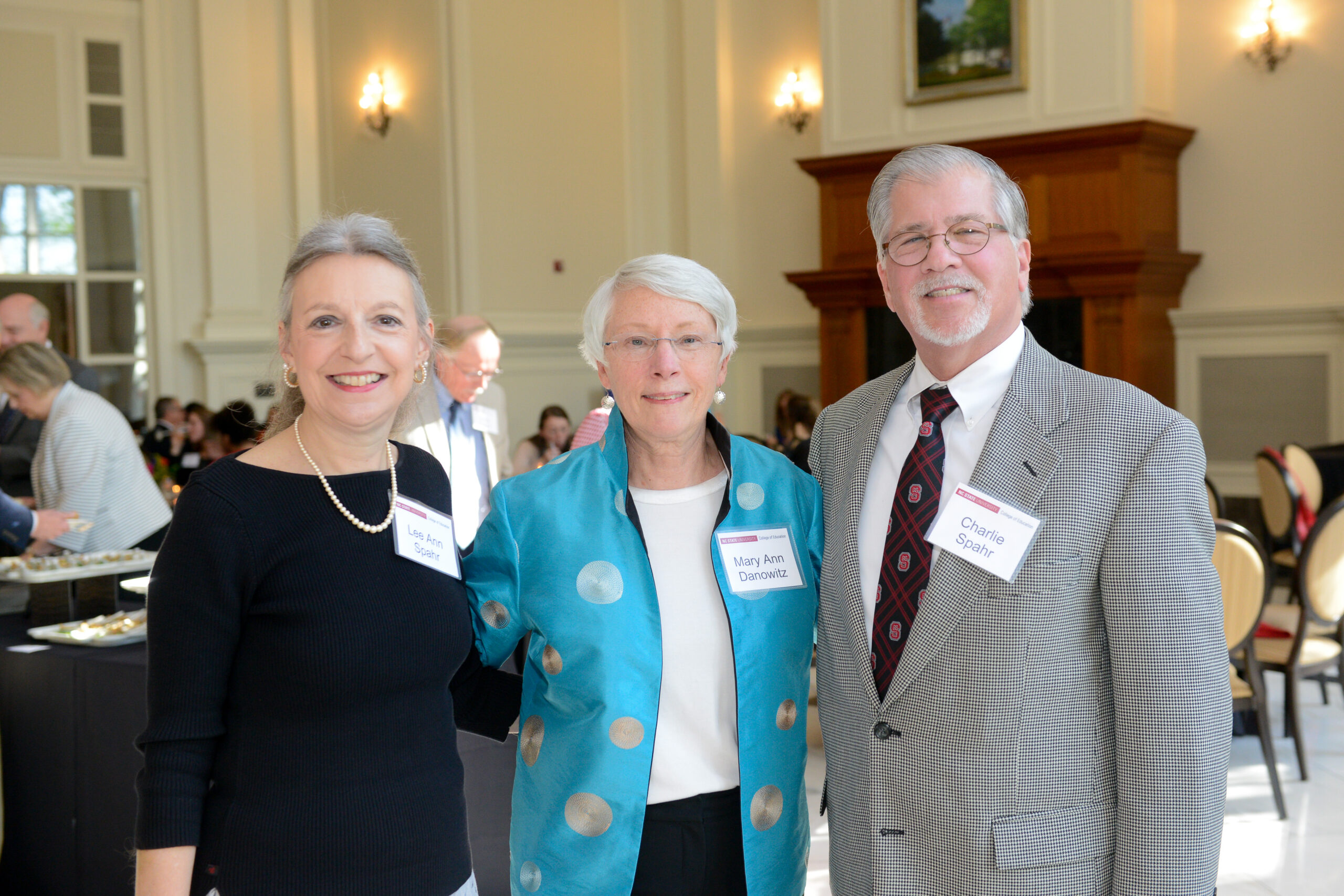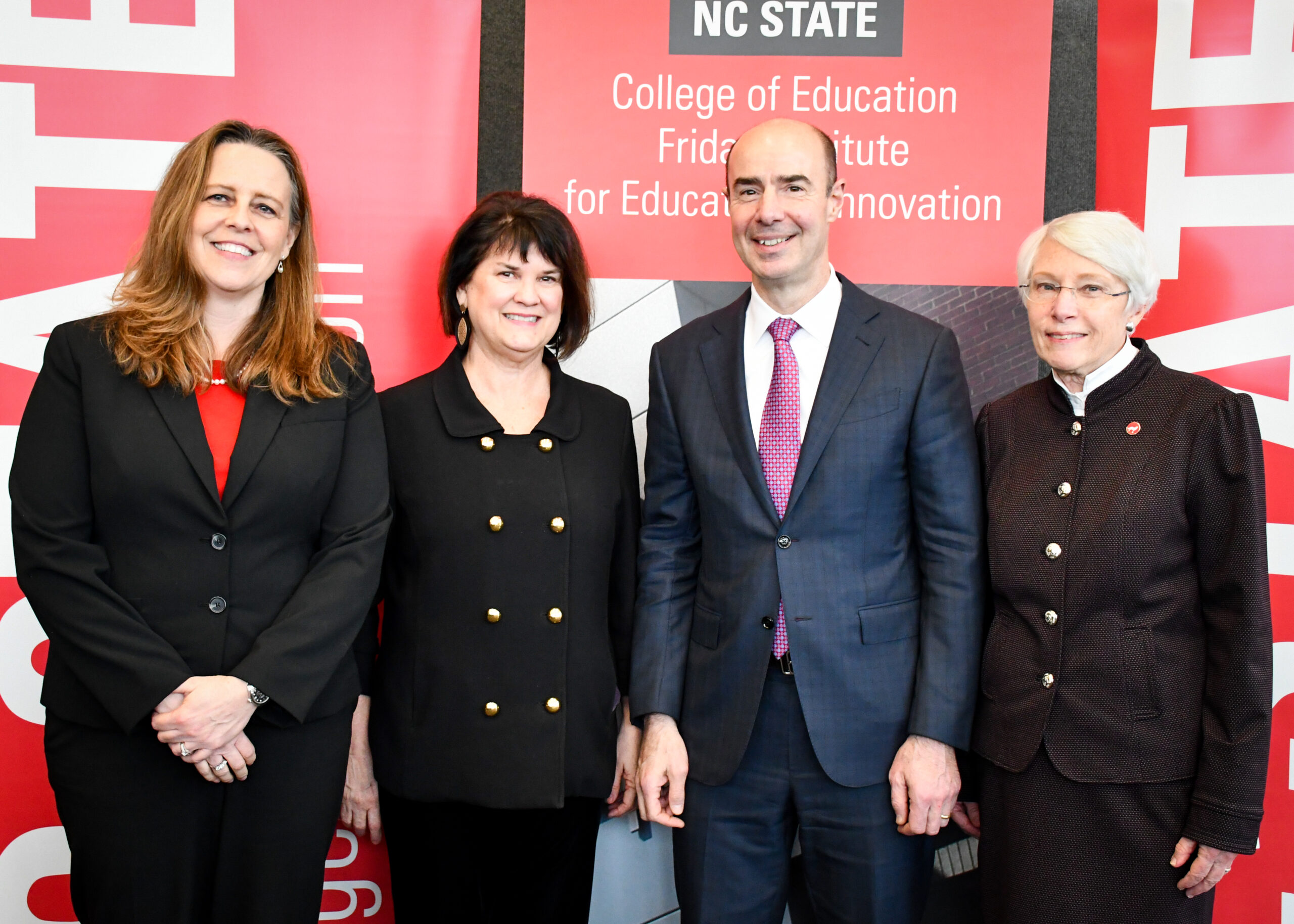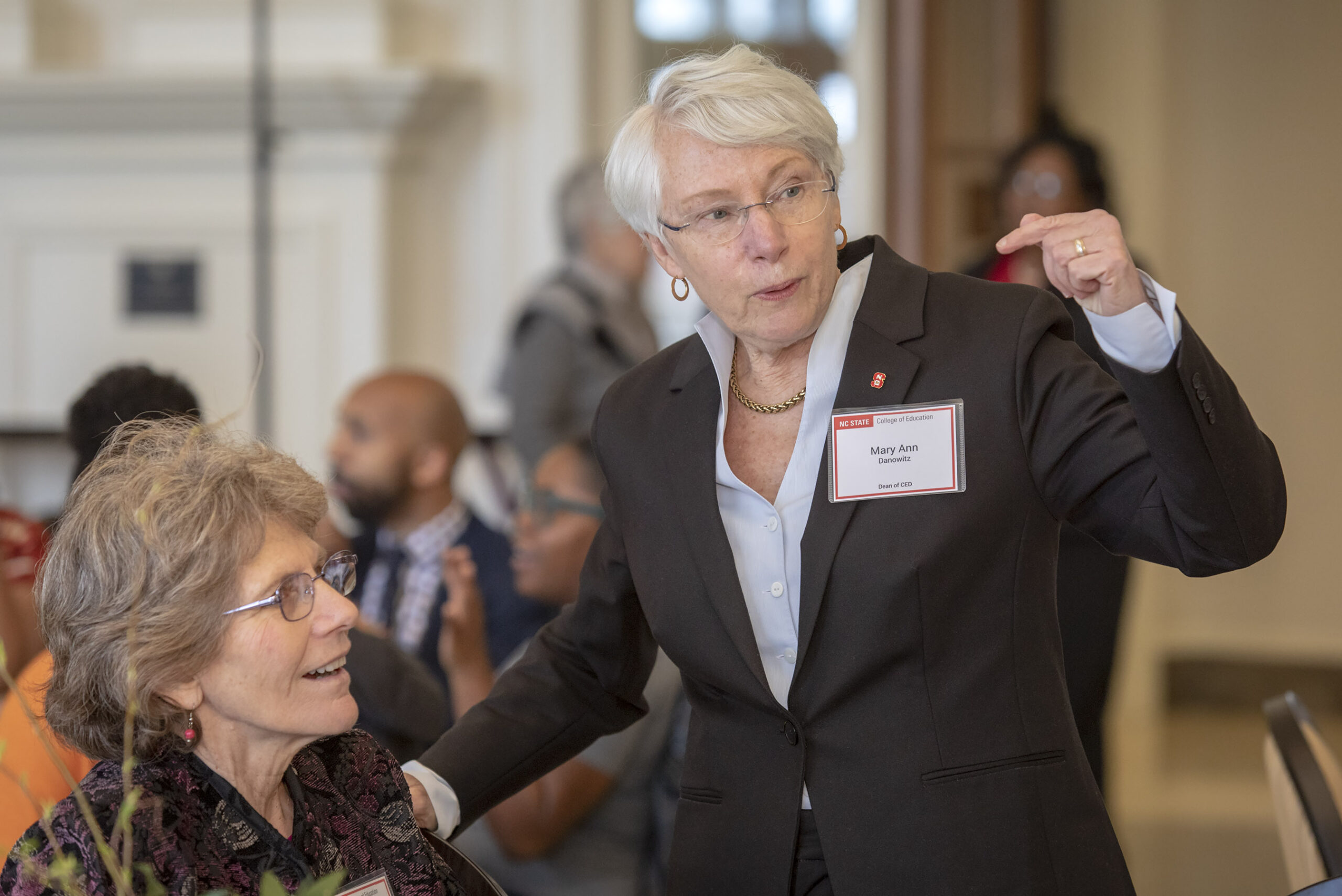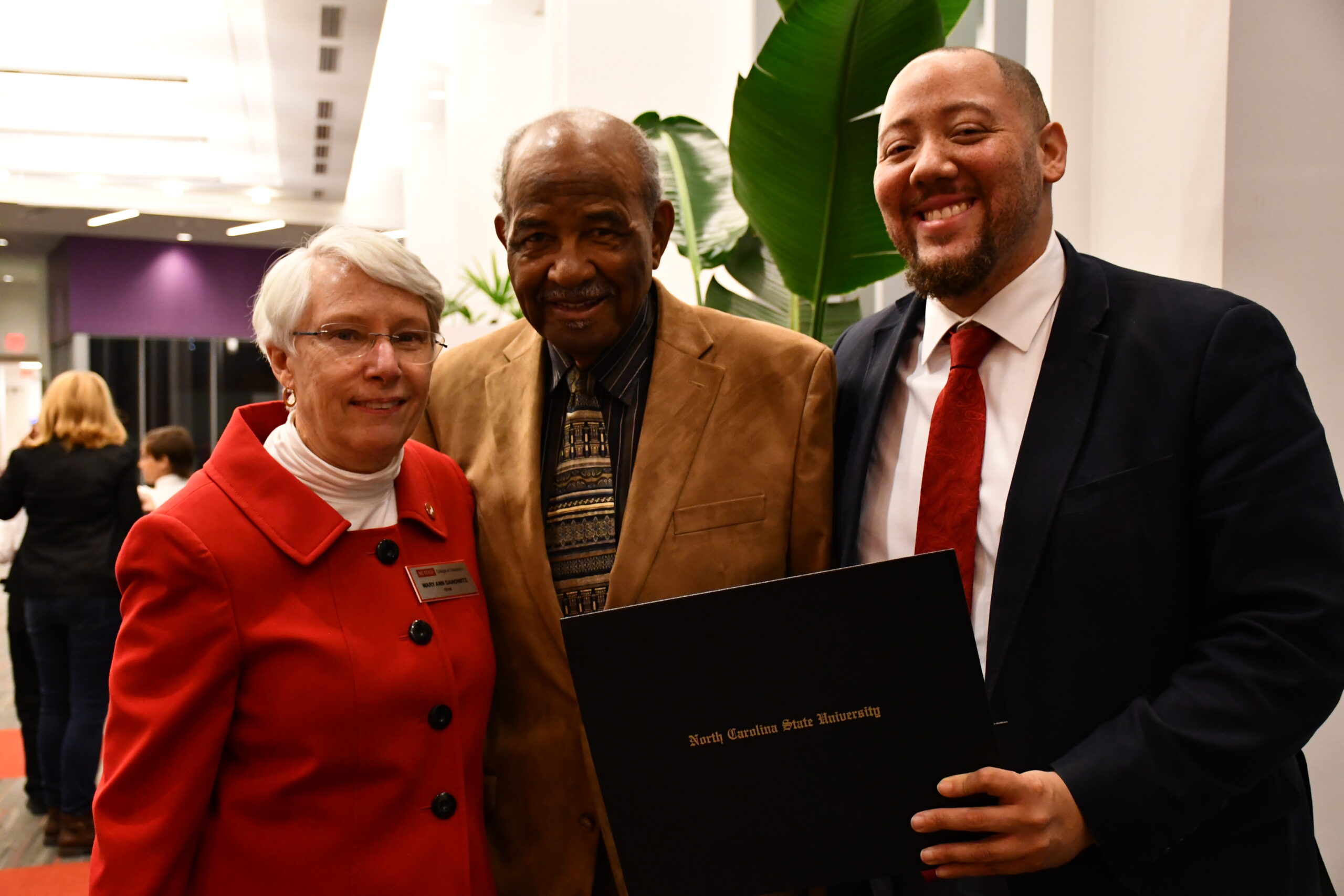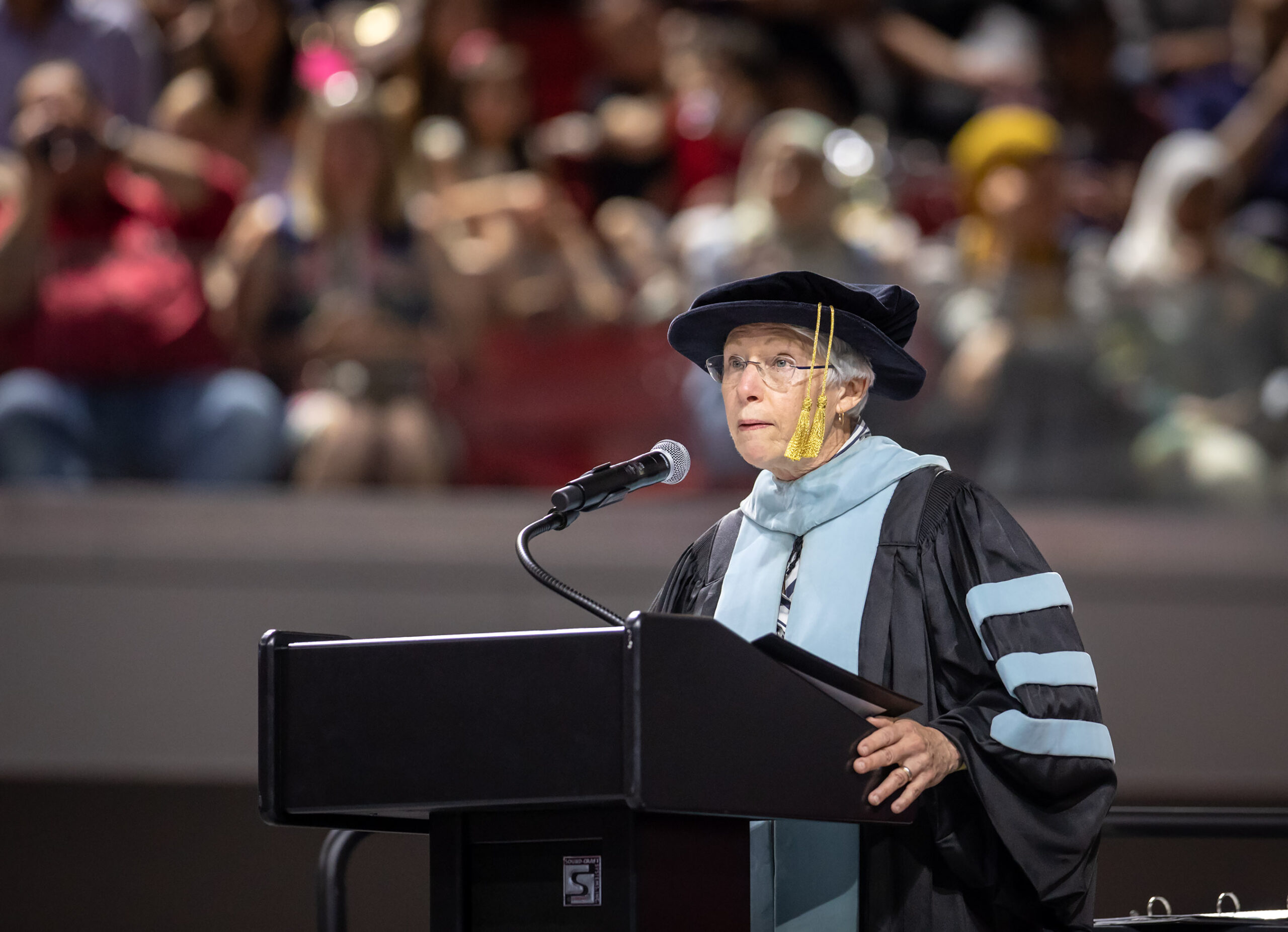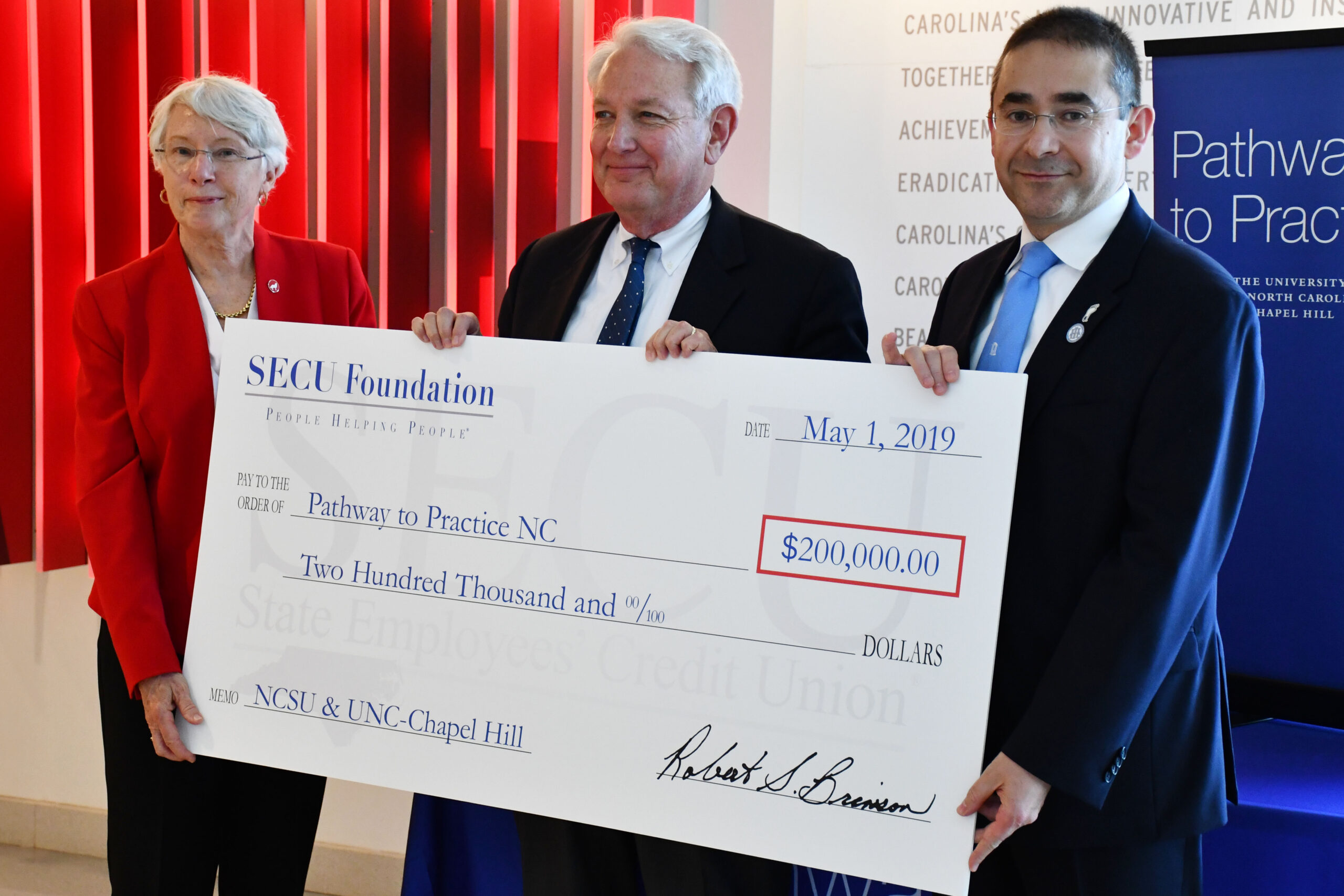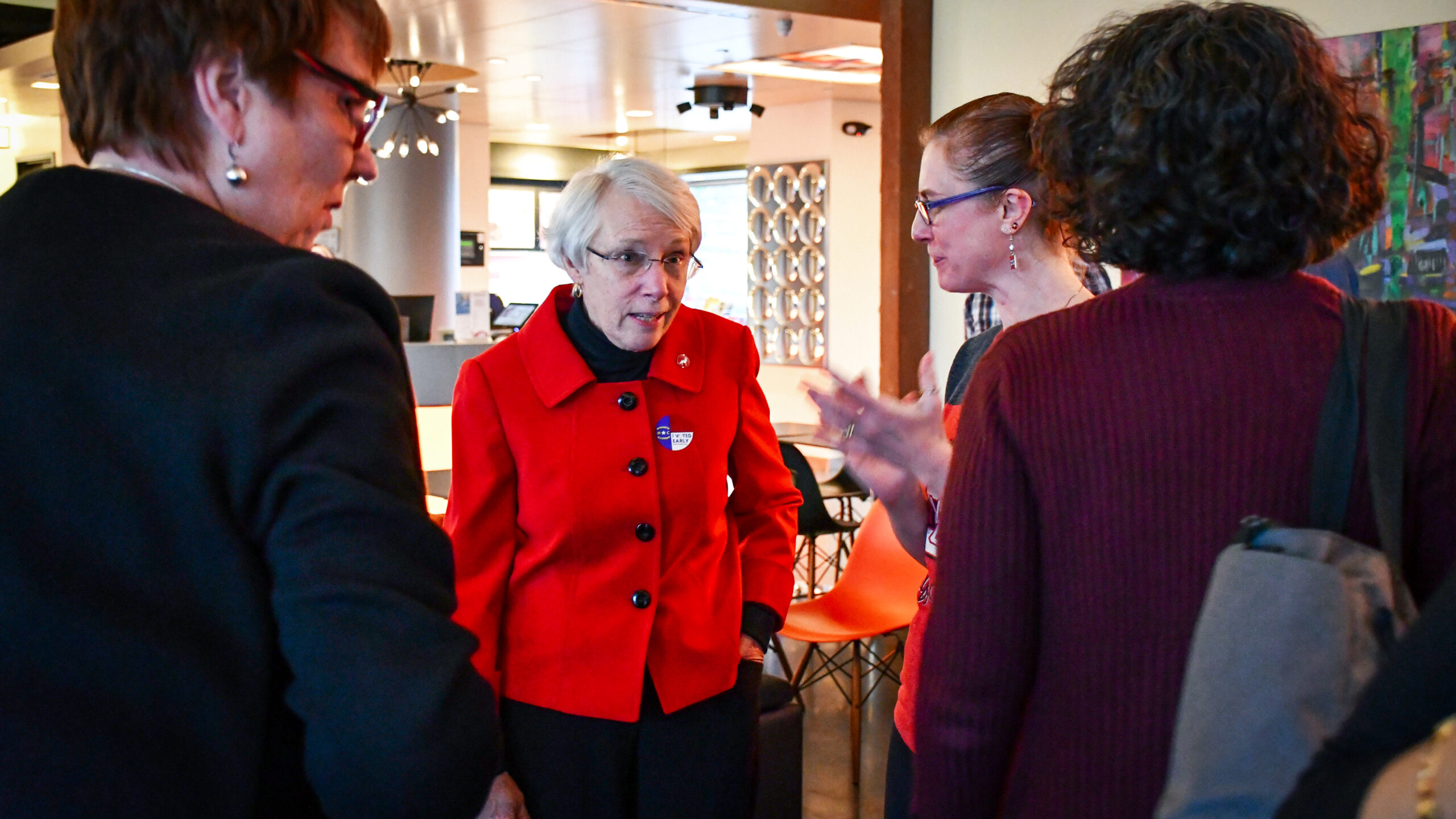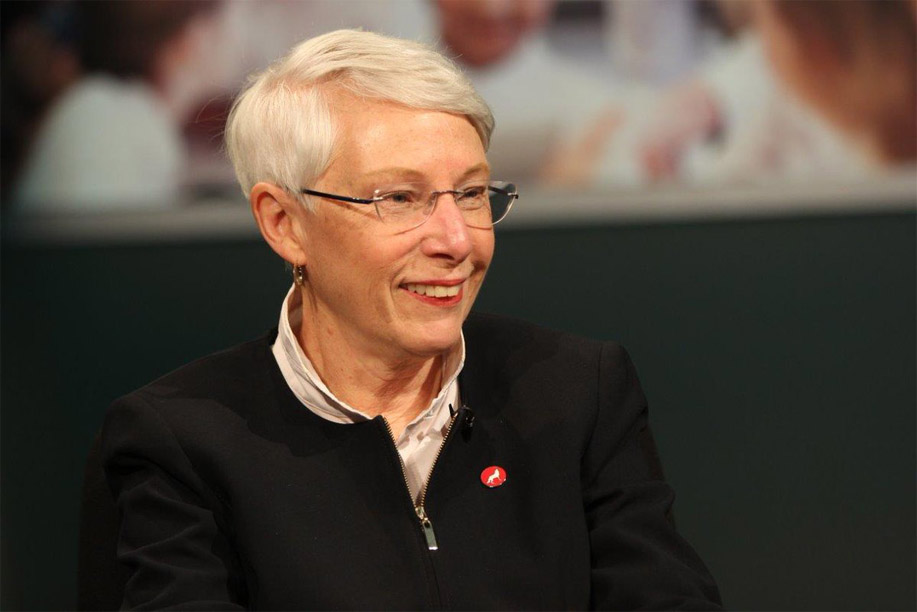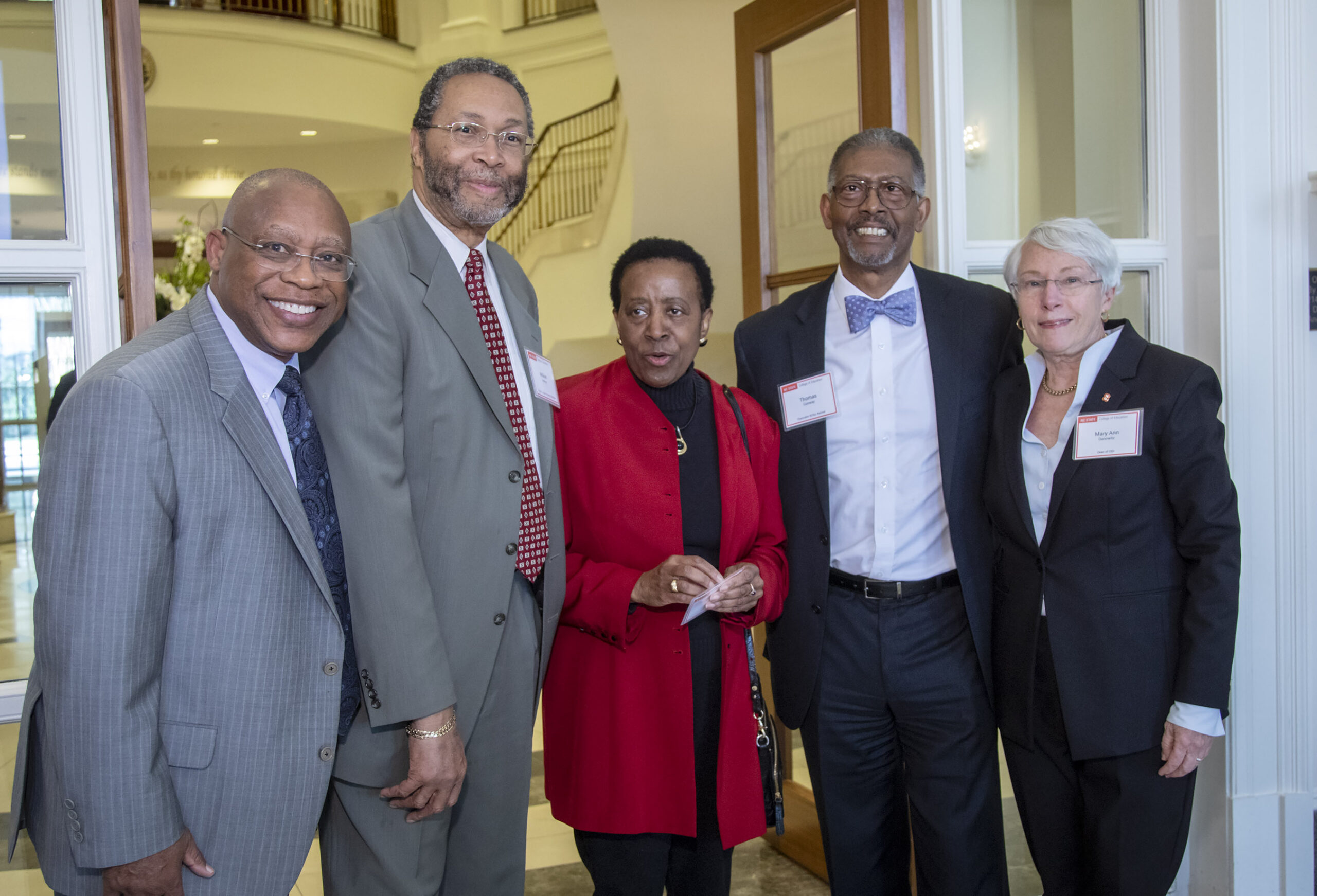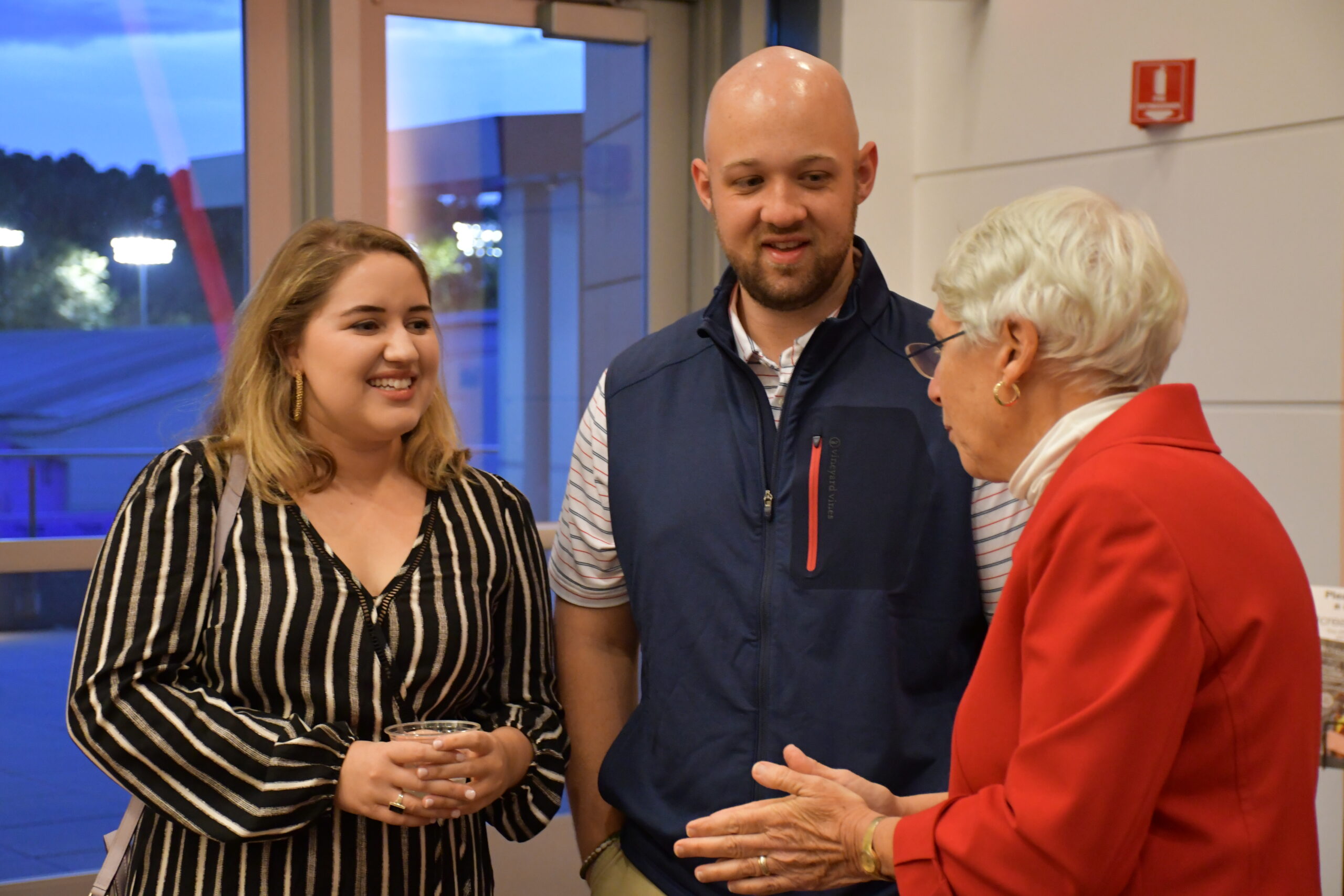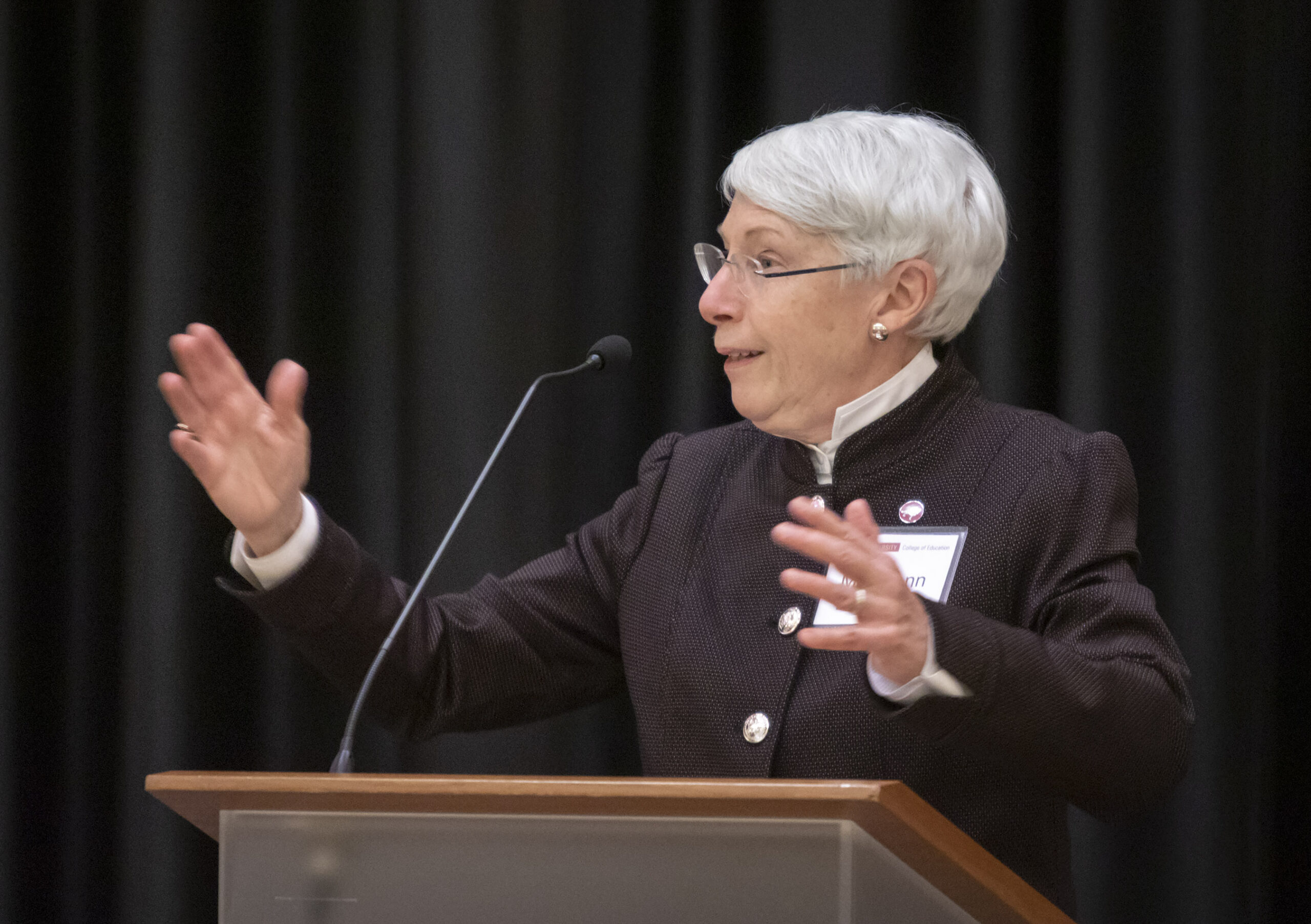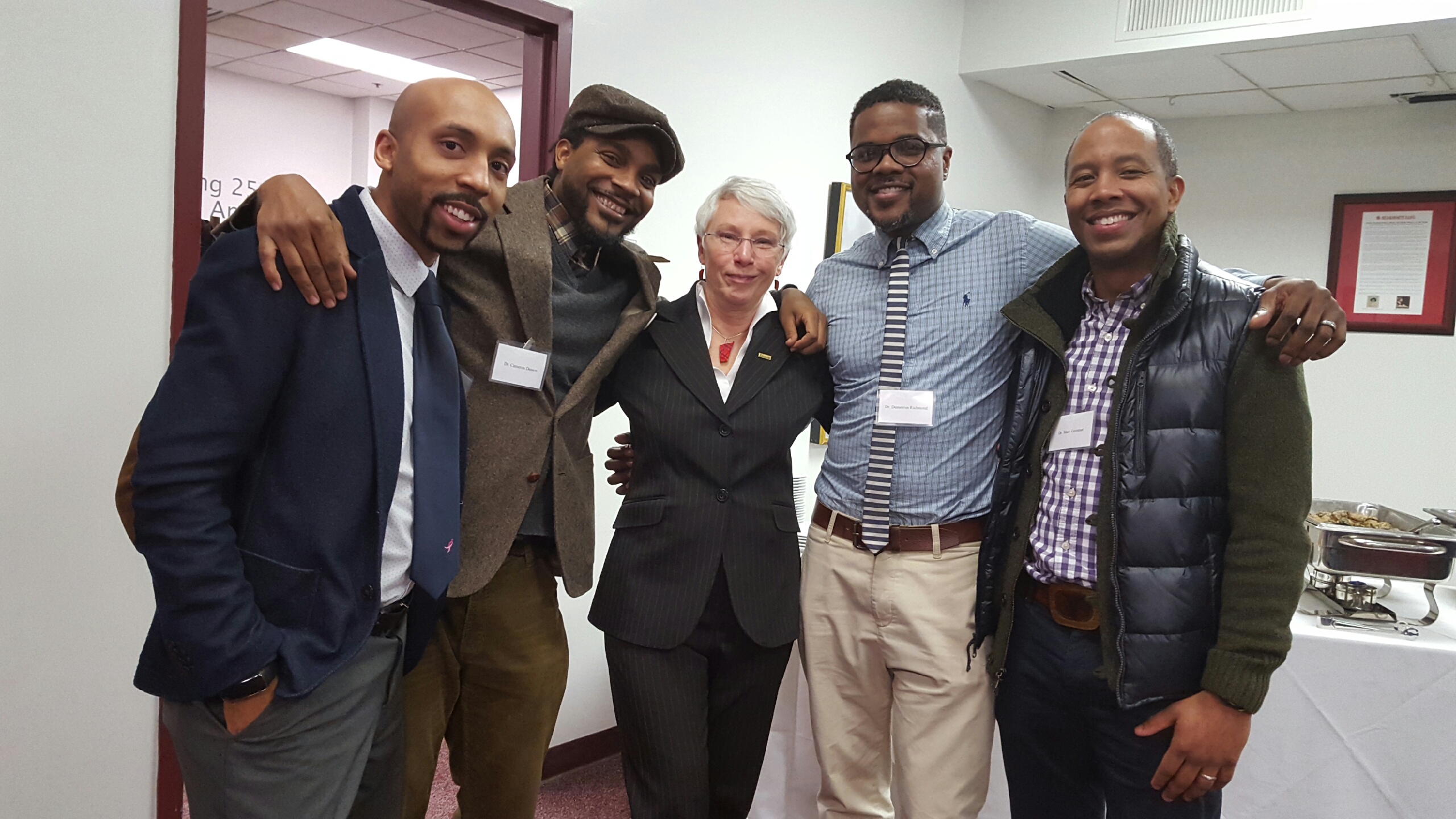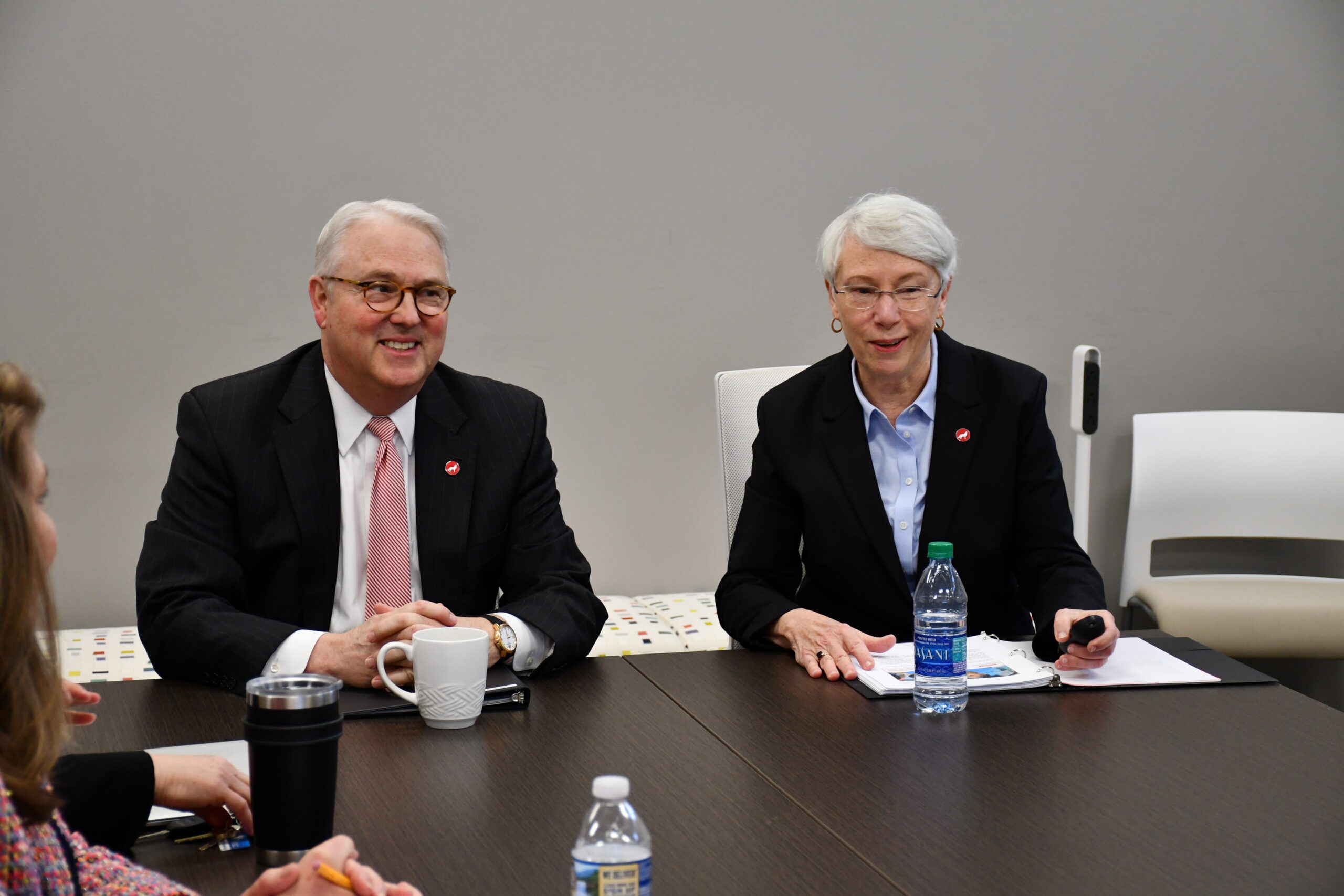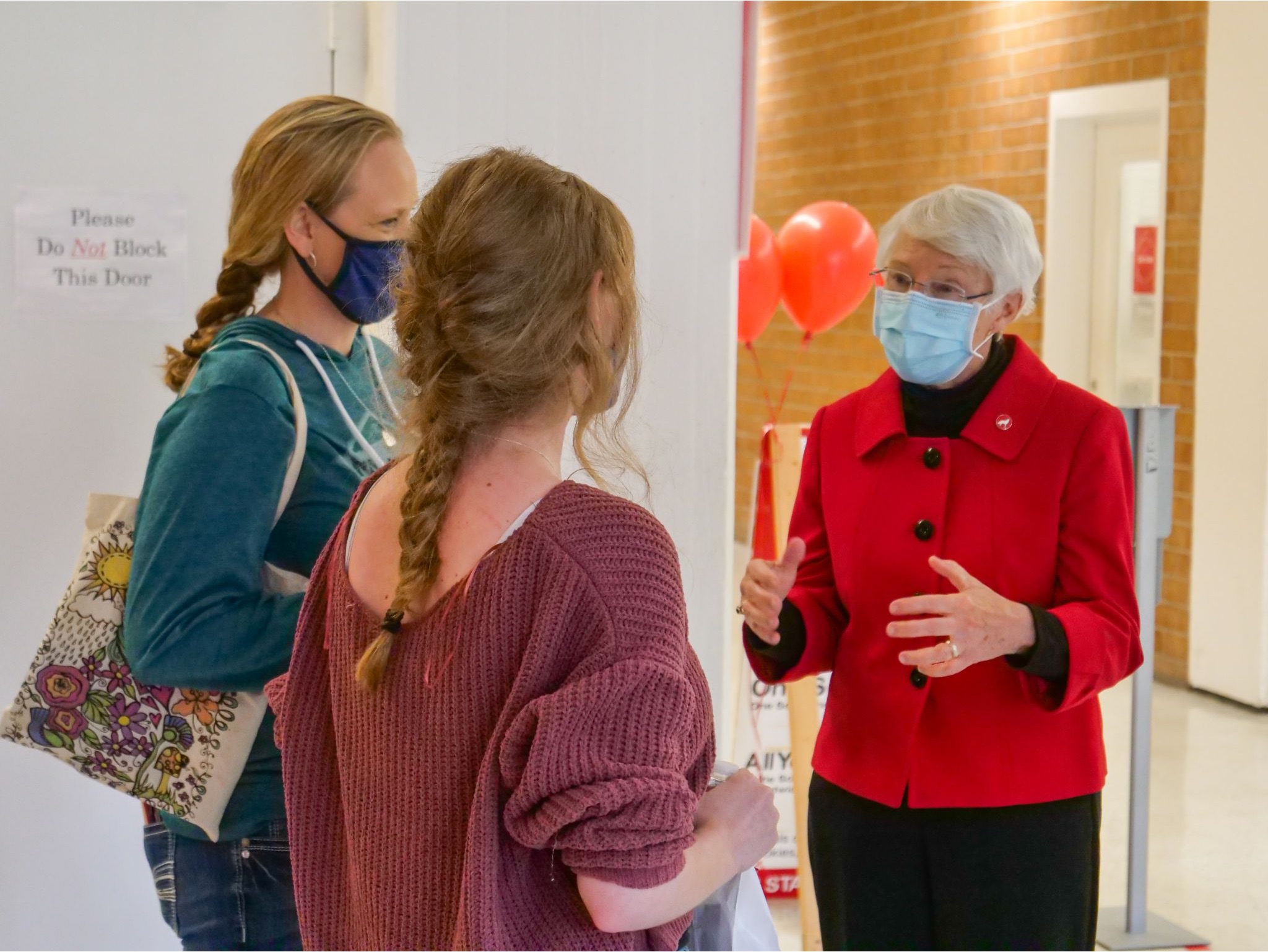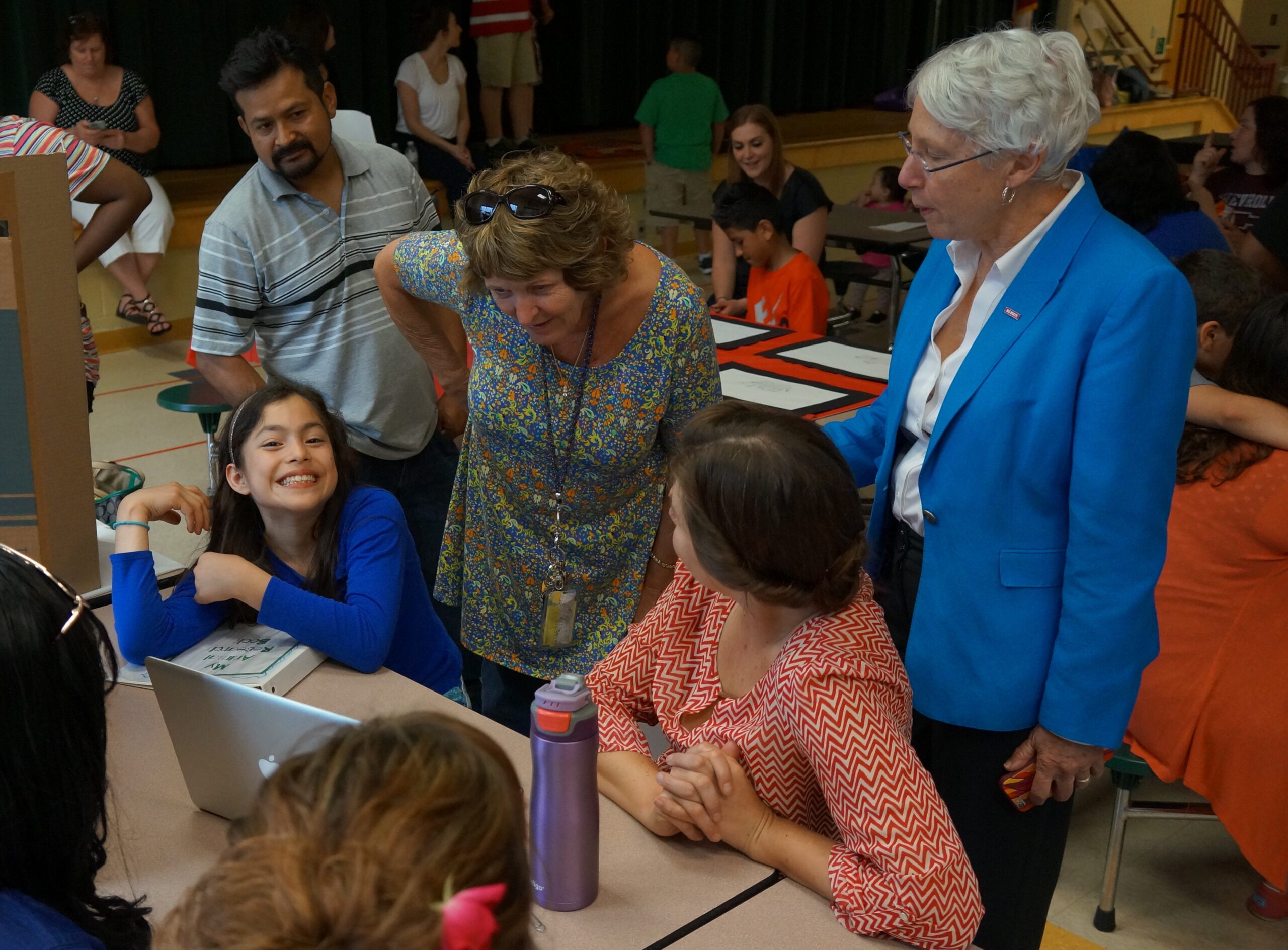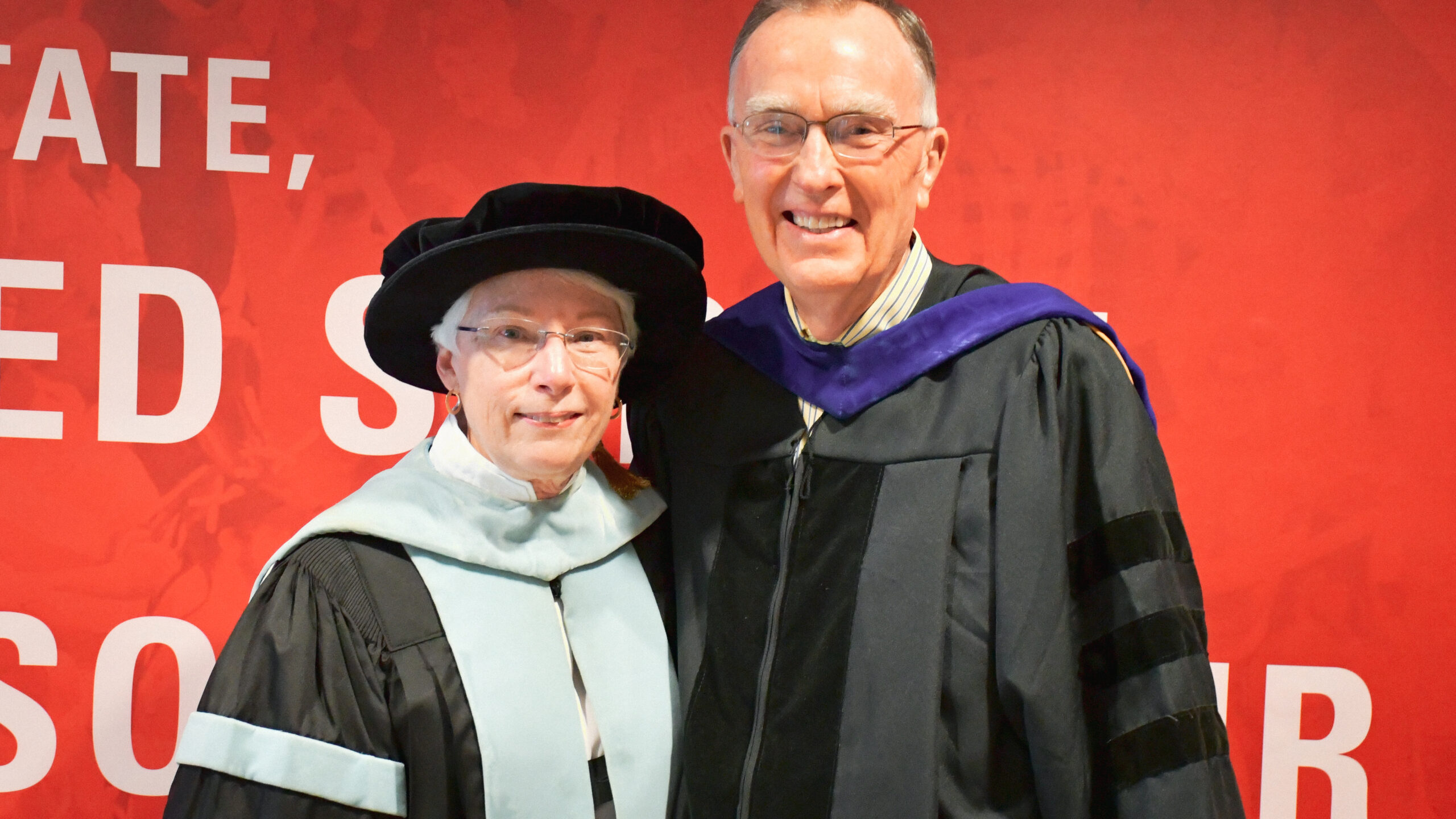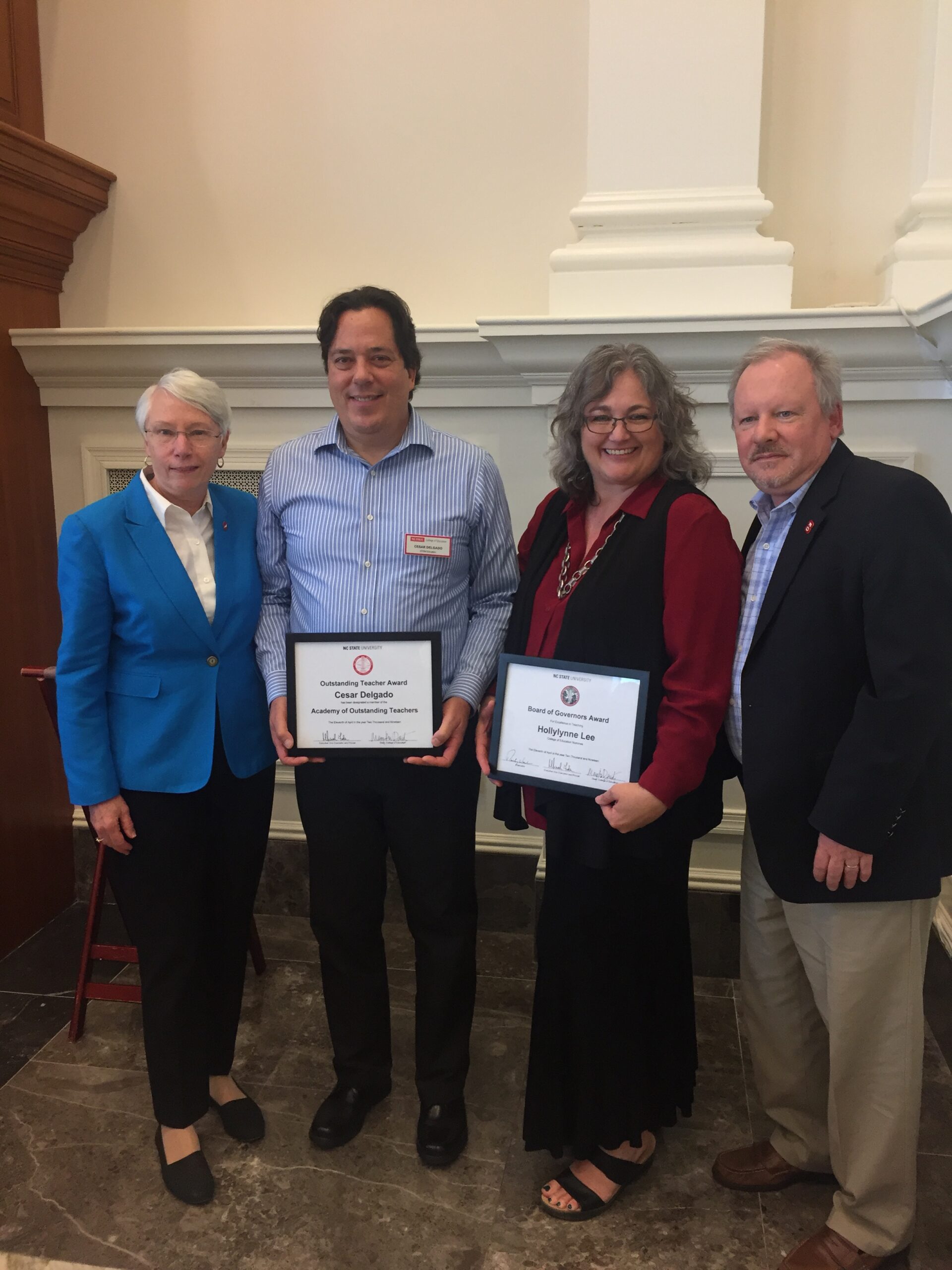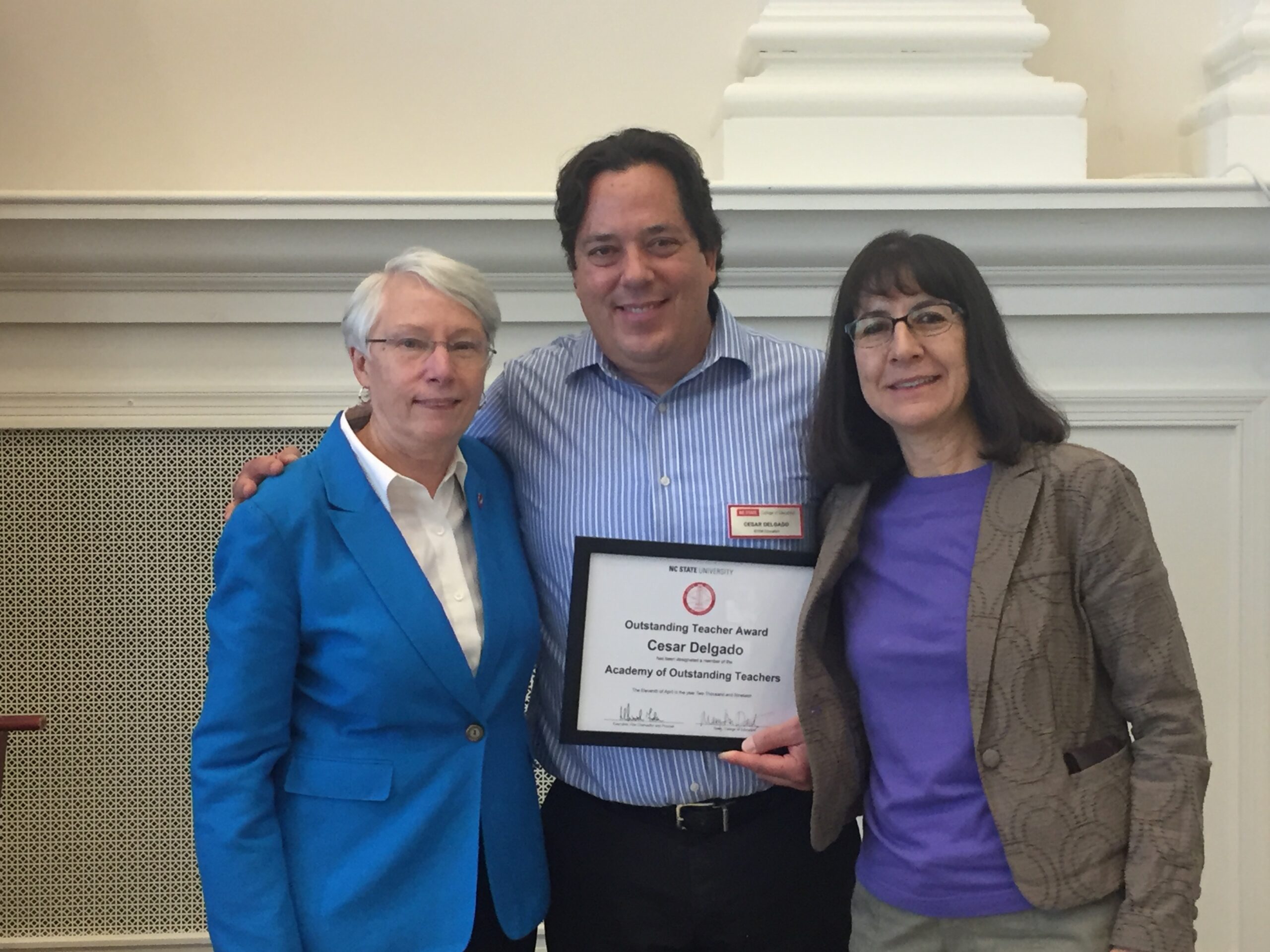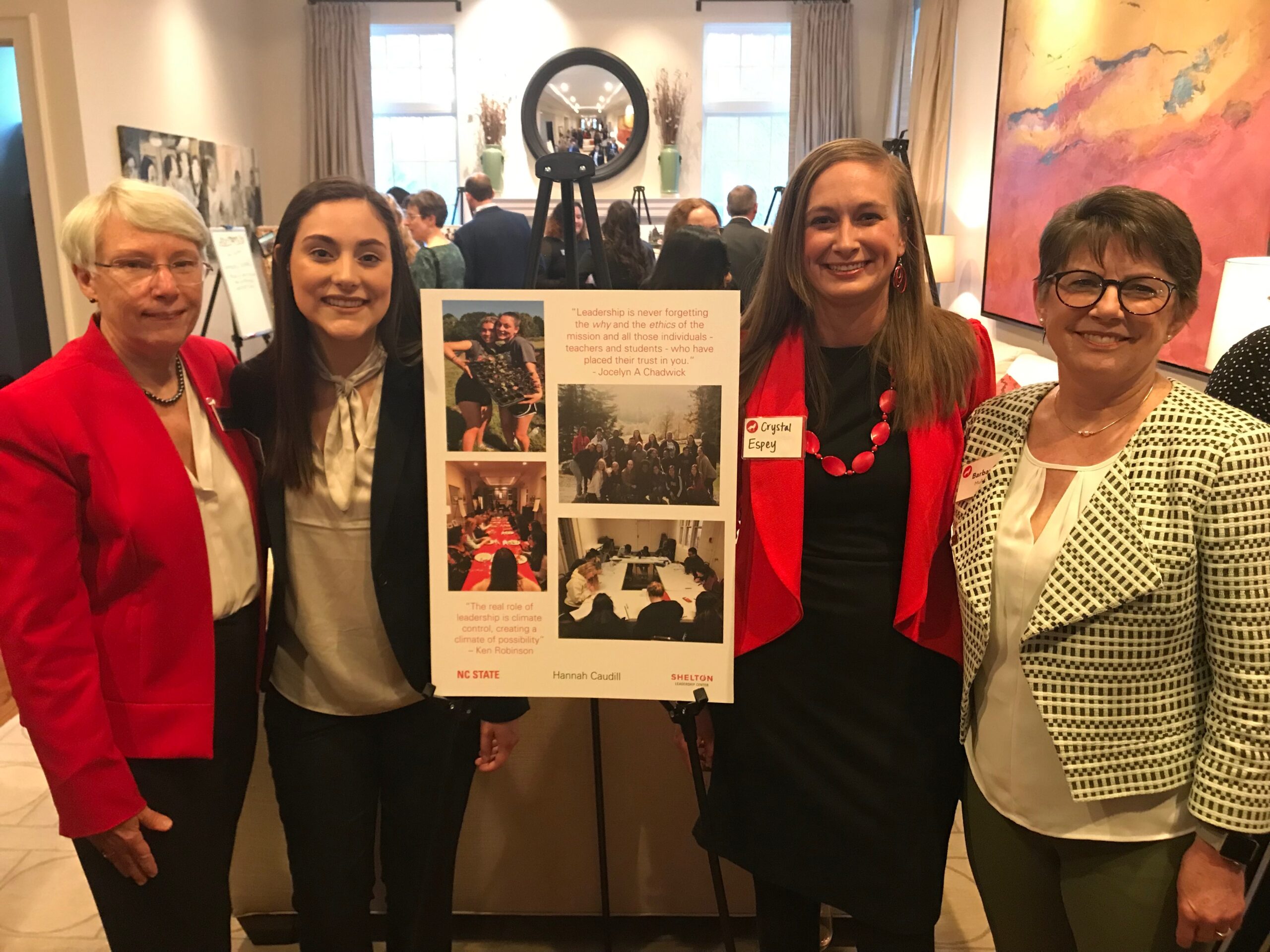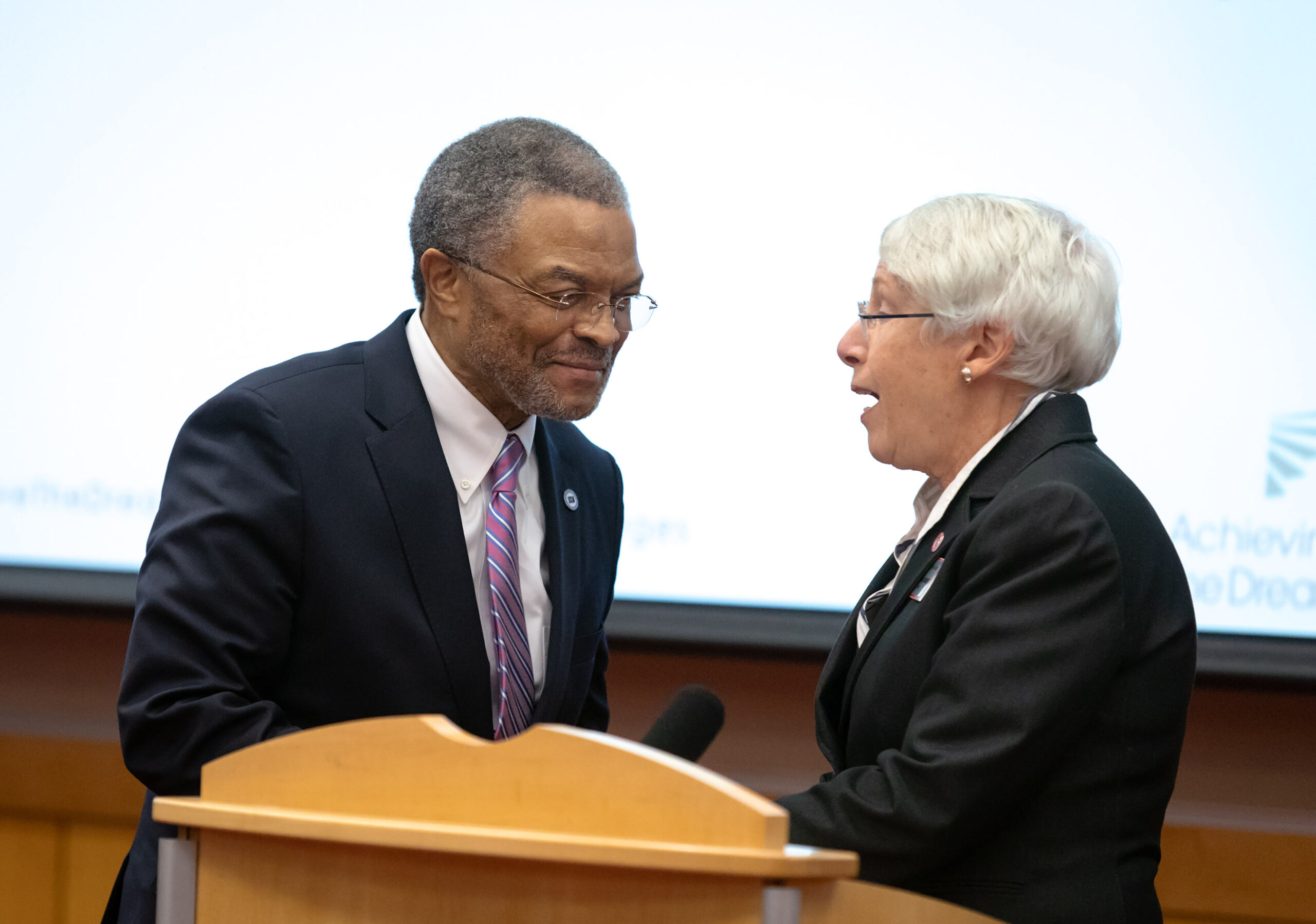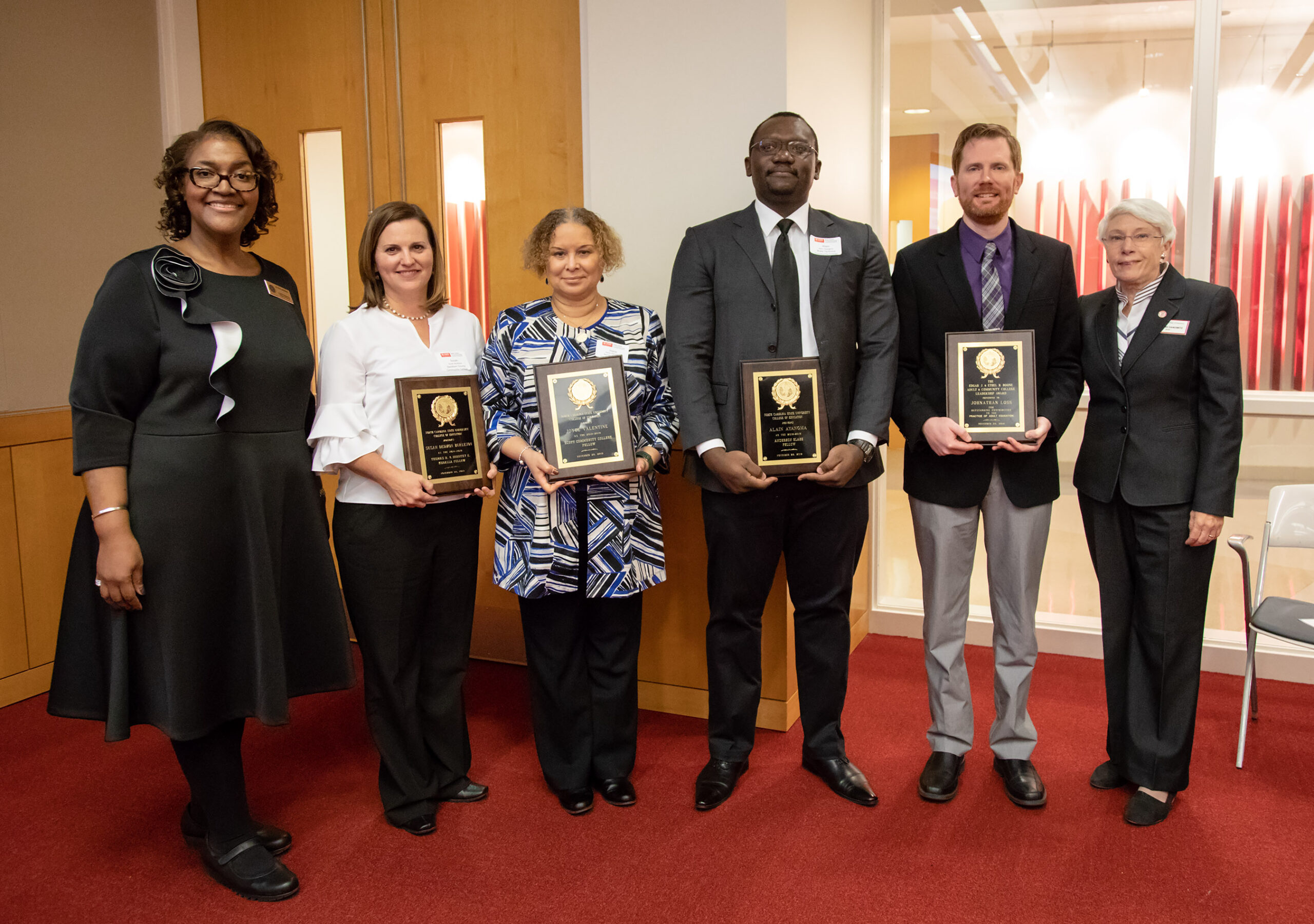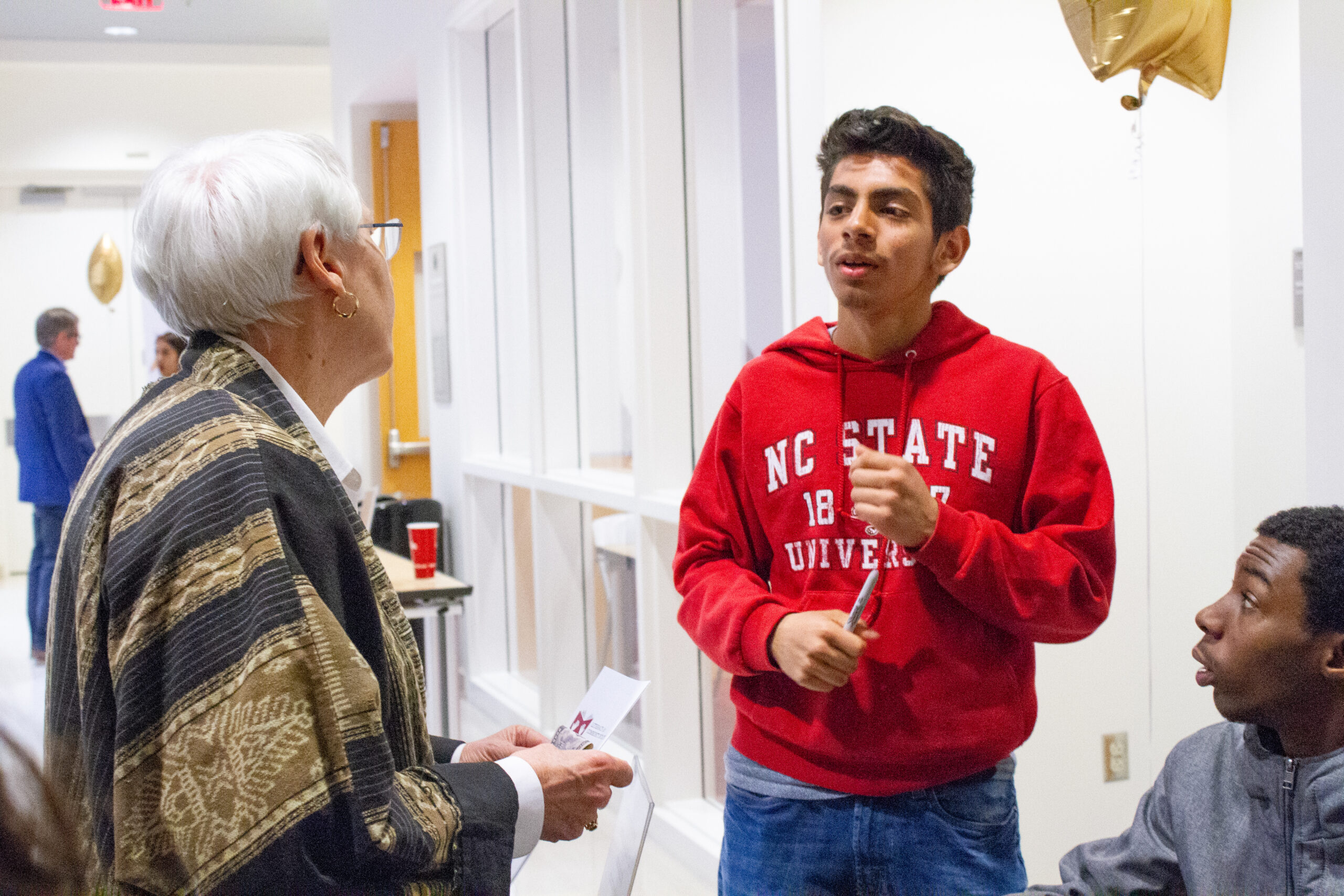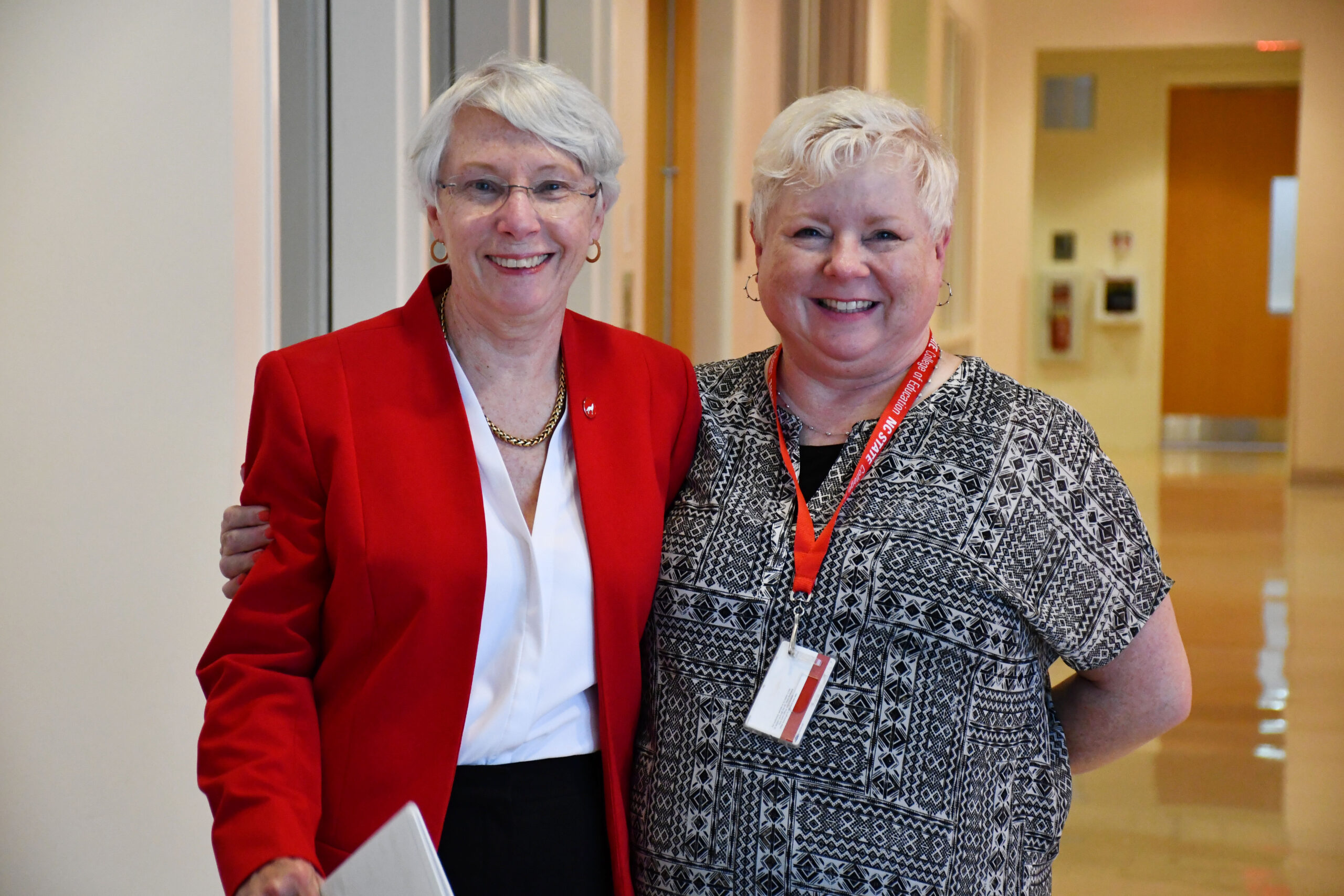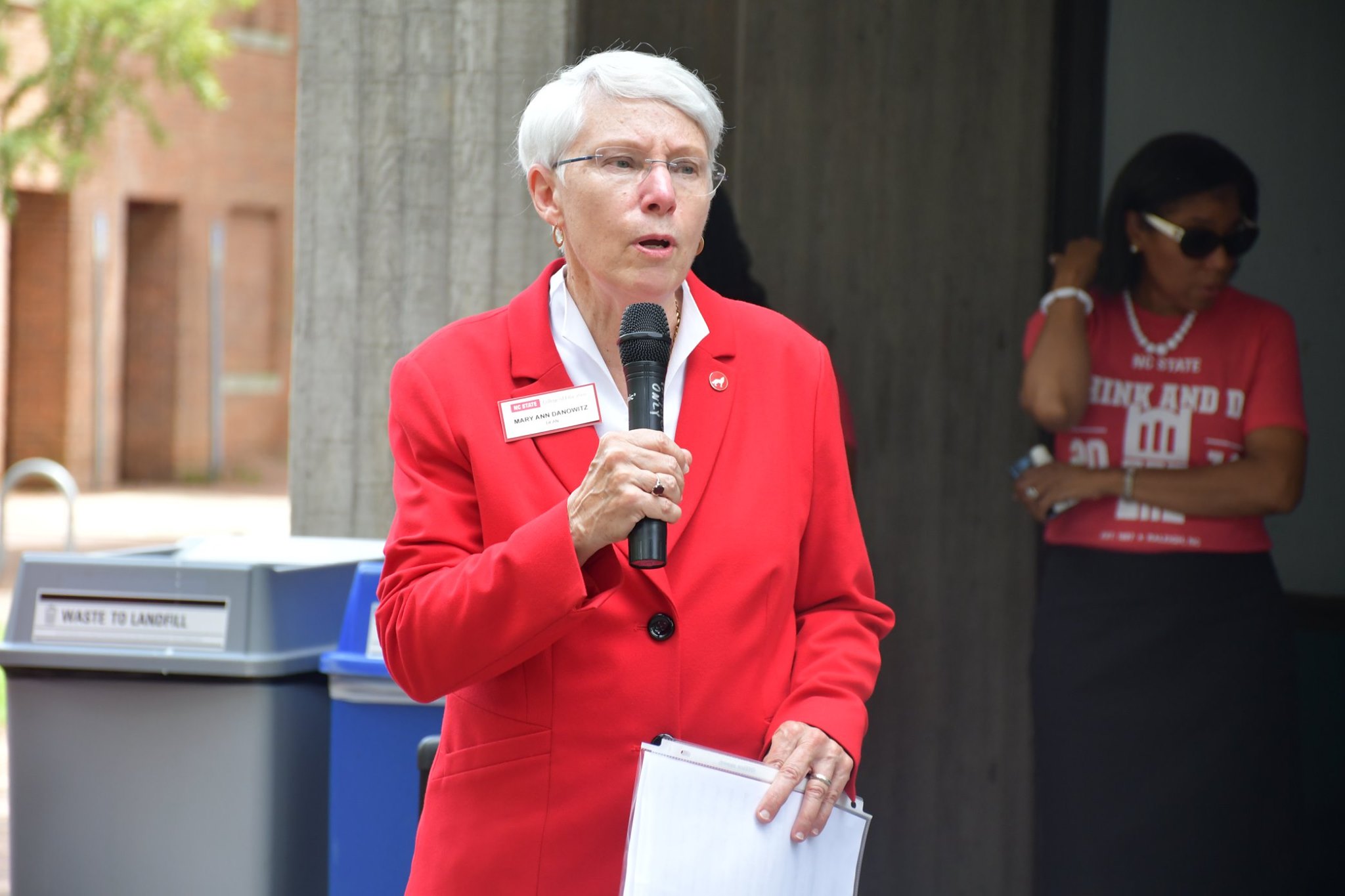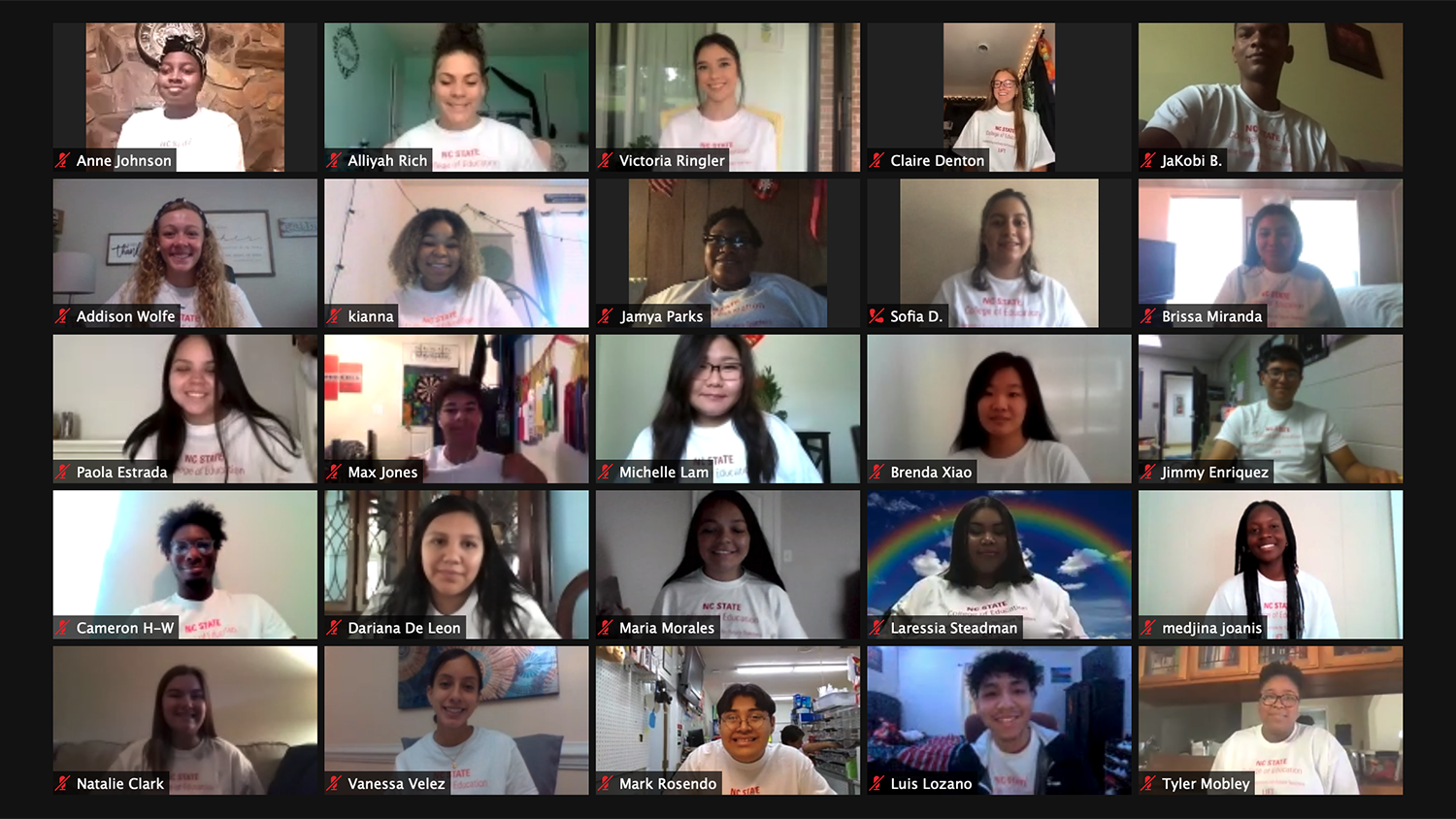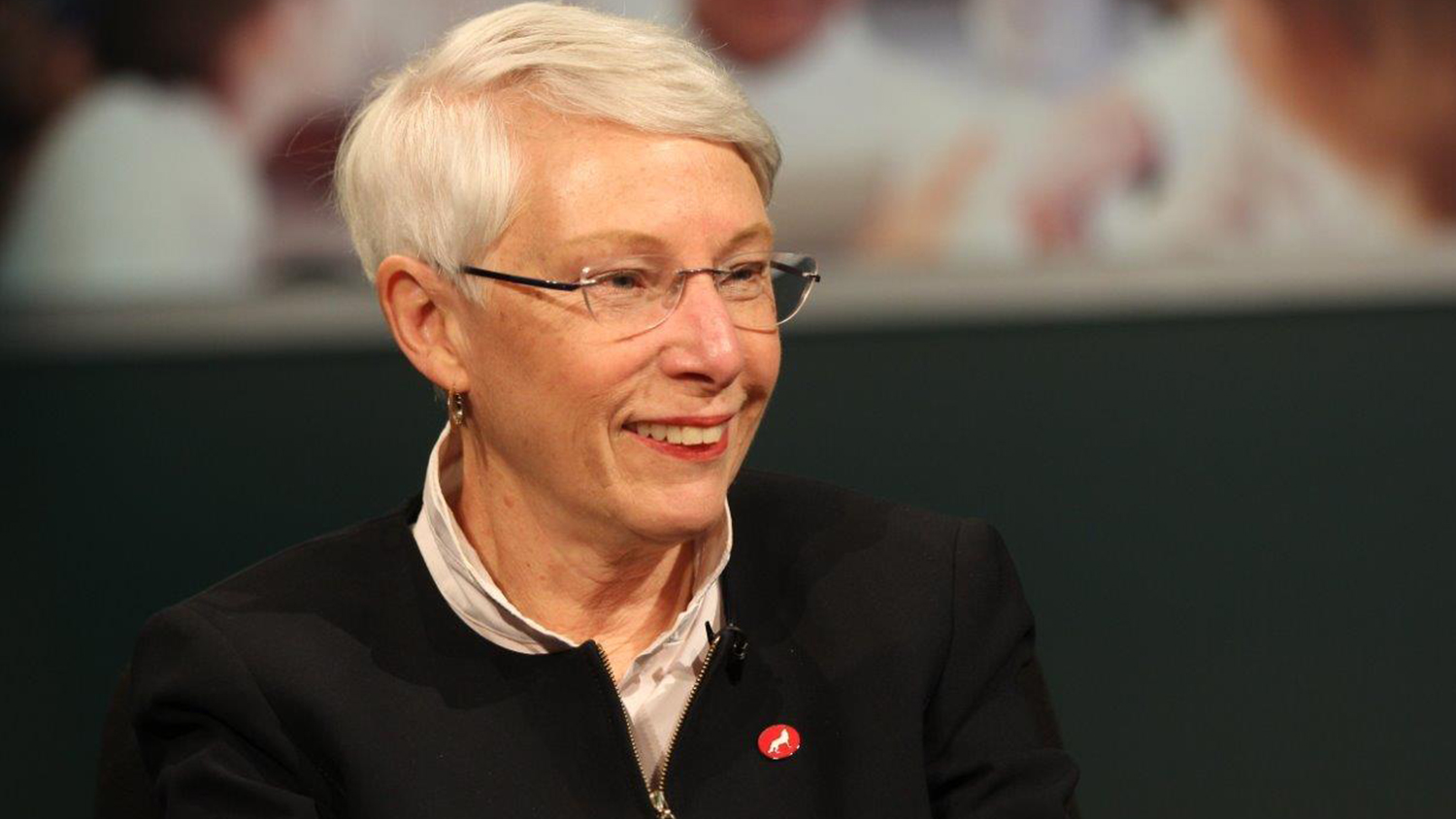
Extraordinary Service and Impact
A look back at Mary Ann Danowitz's tenure as dean of NC State's College of Education.
When Mary Ann Danowitz, D.Ed., became the dean of NC State’s College of Education in April 2016, she set out to bring the college’s faculty, staff and students together as a community to advance their vision to improve educational success in North Carolina and deepen their collective impact so all children and families across the state have a chance at a better life.
Since then, the college has undergone unprecedented growth. During Danowitz’s five-and-a-half years as dean, the College of Education has increased its student enrollment, national rankings and philanthropic investments. The college has also intensified its research enterprise and efforts to advance diversity, equity and inclusion and prepare culturally responsive educators.
In the past few months alone, the college has announced its
- highest level of enrollment in at least a decade,
- highest number of grants awarded in a single year since records have been kept, and
- highest amount in gifts and pledges committed in a single year since records have been kept.
“NC State and the entire state of North Carolina owe Dean Danowitz much appreciation and gratitude for her extraordinary service and impact as the dean of the College of Education,” said Mike Ward ’77, ’81MS, ’93EDD, the chair of the NC State College of Education Board, a professor of the practice with the College of Education and a former state superintendent of North Carolina. “On her watch, the College of Education made incredible strides in so many areas of impact that benefit all children and families in North Carolina.”
On Oct. 4, Danowitz will step down as dean and return to the faculty in the college’s Department of Educational Leadership, Policy and Human Development, where she was the department head before serving as interim dean and then dean.
“I’ve been fortunate to have a long career in higher education — five decades now,” she said. “As I look back as well as look ahead, the role and responsibilities of dean have been the highlight of my career. But I don’t think about what I’ve done. I think about what we have done as a college and what it means to lead a group of highly motivated, talented, capable people.”
The time is right to step down as dean, she adds, because “the college is in a great place … and I do not believe that there could be any organization that has more dedicated and talented faculty and staff who believe in what they do.
“Now is a good time for someone else to come in and take the college to the next level.”
Paola Sztajn, Ph.D., will serve as interim dean of the College of Education beginning Oct. 5 while NC State conducts a national search for the college’s next dean. Szatjn is professor of mathematics education in the College of Education and a special assistant in NC State’s Office of the Executive Vice Chancellor and Provost who had previously served in the college as associate dean for research and innovation and as head of the Department of Teacher Education and Learning Sciences.
Below are highlights of five things that the College of Education accomplished during Mary Ann Danowitz’s tenure as dean.
1. Increased its student enrollment.
As of September 2021, the College of Education’s total enrollment across all programs is 1,957 students—the college’s highest level of enrollment in at least a decade and a 22% increase in total enrollment since 2016.
Today, the college has 618 undergraduate students, which is an increase of 30% since 2016. There are 1,339 graduate students, including an all-time high of 518 doctoral students. In addition, a record number of students at both the undergraduate and graduate levels applied to the College of Education for fall 2021 admissions.
“At a time when colleges of education have had a tough time attracting and keeping students, Dean Danowitz has kept us competitive and helped us bring a bright, capable, and diverse student body to State’s College of Education,” Ward says. “That’s not just good for the university; that’s good for the state and nation, as our graduates have such a profound impact on kids, families and communities.”
- College of Education Opens 2021-2022 Academic Year with an Expected 1,942 Students, Its Most in a Decade
- How We’re Preparing Exceptional Principals
- NC State: Home to Largest Teaching Fellows Cohort in N.C.
- Helping Doctoral Students Become Scholar Leaders to Tackle Pressing Educational Issues
- How We Became a Leader in STEM Education
- Developing Extraordinary Educators through Field-based Experiences
related stories from the past 5 years
2. Strengthened its research enterprise.
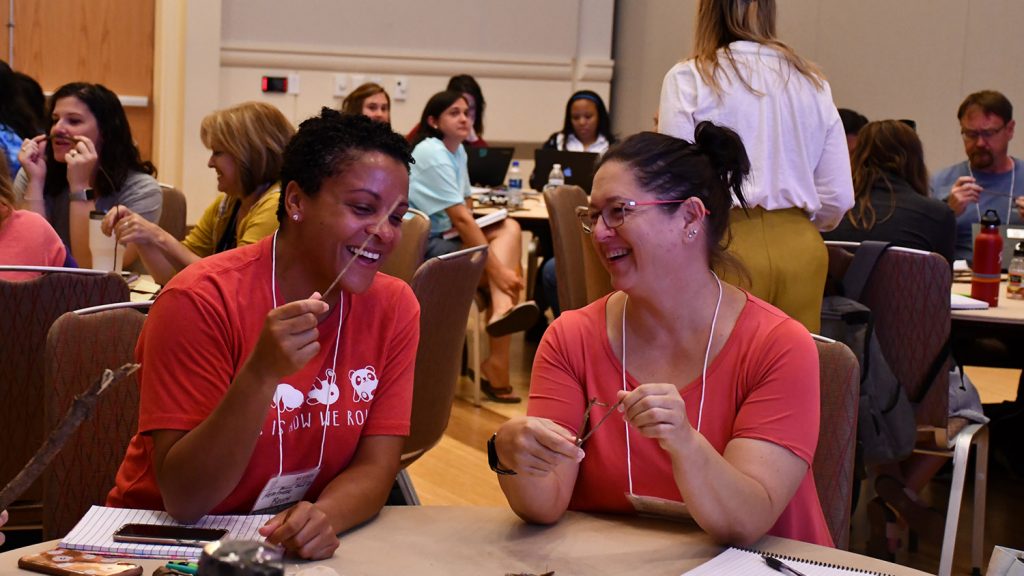
Over the past five years, research expenditures* within the College of Education have increased by 39%, the highest five-year increase across all colleges at NC State. In 2020-2021, the college’s research expenditures exceeded $18 million. That is the most of any college of education in North Carolina and more than double the next school in the state, and stands among the Top 6% among all colleges of education in the nation.
As of September 2021, the College of Education’s faculty, staff and research associates, including those at the Belk Center for Community College Leadership and Research and the Friday Institute for Educational Innovation, were engaged in 121 active research projects supported by more than $85 million in external funds.
“Some of the things that I’m especially proud of are the fact that we have intensified our research so that we can really apply the most current knowledge that solves educational problems in North Carolina, which are the same problems that exist across our country,” Danowitz says. “Our research goes right into the classrooms, community colleges and communities to strengthen them.”
*Research expenditures refer to the amount of funds spent to conduct research, and it’s most often used to measure research activity in comparison to others.
- With $17.3M in Funding Awarded for 73 Grants, College of Education Faculty Set Record For Number of Grants Awarded in a Single Year in 2020-21
- How We’re Improving Early Literacy in North Carolina
- Envisioning Excellence to the Belk Center: How the College of Education Has Changed the Way Community College Leaders are Supported, Prepared
- How the NC State College of Education Helps In-Service Teachers Across North Carolina Succeed
- How the NC State College of Education is Addressing Workforce Development Goals
- With $30.5M in Funding Awarded in FY2019-20, College of Education Faculty Set Record for Grants Awarded for Third Consecutive Year
related stories from the past 5 years
In Pictures
View photos of Mary Ann Danowitz, D.Ed., during her tenure as dean of the College of Education.
3. Enhanced its national reputation.
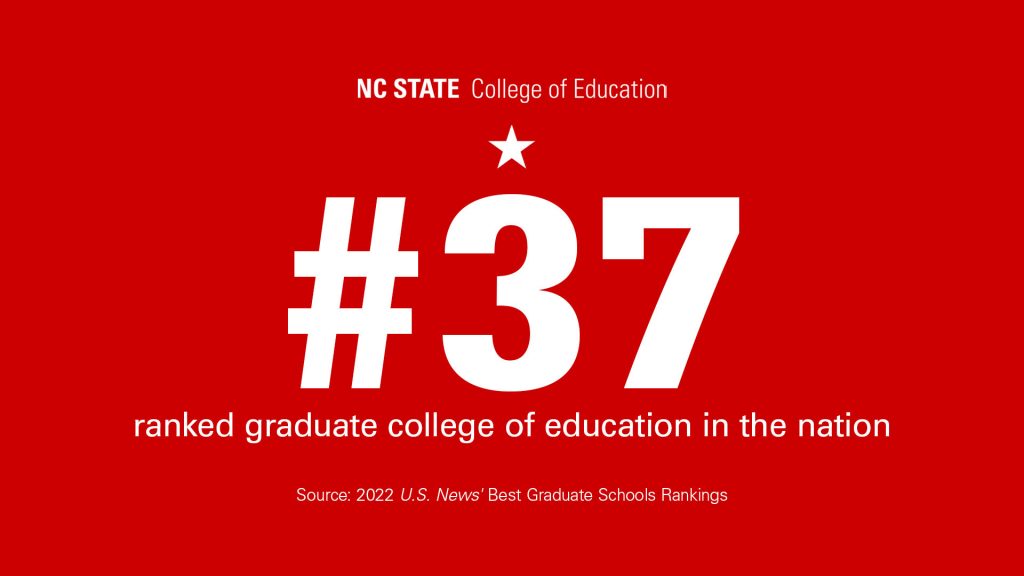
The College of Education has jumped as many as 28 spots in the U.S. News & World Report’s Best Graduate School Rankings since 2016, when the college was ranked 59 among all colleges of education in the nation. In the 2021 Best Graduate School Rankings released in spring 2020, the college was ranked #31 among all colleges of education and had five programs ranked in the Top 30 nationally in education speciality categories.
In the most recent U.S. News rankings released in spring 2021, the college was ranked in the Top 40 nationally and had multiple programs ranked in the Top 30 nationally for only the second time in its history.
“Dean Danowitz led us in ways that grew the respect of our College of Education across the state and nation, helping draw high rankings and high praise for the college and our programs and attract and retain some incredibly capable scholars and practitioners,” Ward says.
- U.S. News Ranks College of Education #37 in Nation, 4 Programs in Specialty Categories (2021)
- College of Education Ranked in Top 100 in THE World University Rankings
- U.S. News Ranks College of Education #31 in Nation, 5 Programs in Specialty Categories (2020)
- College Magazine Ranks NC State No. 9 in Nation for Education Majors
related stories from the past 5 years
4. Grew its philanthropic investments, particularly to support students.
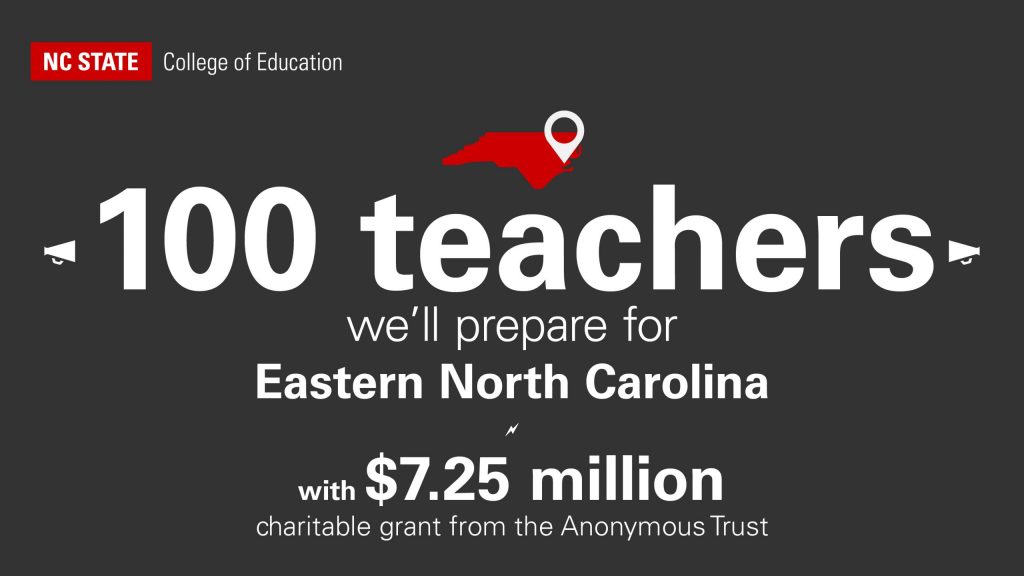
The College of Education received $14,006,877 in gifts and new commitments in 2020-2021—the highest amount in philanthropic investments the college has received in a single fiscal year since records have been kept. The previous high in philanthropic investments of $13.4 million was set in 2017-2018 when the college celebrated its 90th anniversary, also under Danowitz’s leadership.
Gifts in 2020-21 included $7.25 million from the Anonymous Trust to establish the Transformational Scholarships Program and prepare 100 teachers for counties in Eastern North Carolina with fewer resources but greater needs. That is the largest gift the College of Education has received for student scholarships since records have been kept, and among the largest of its kind ever awarded to any college of education in North Carolina to prepare teachers.
Because of the increase of donor support, the college has been able to increase the amount of assistance it provides to students through scholarships and other direct support. In the past three years, for example, the college’s annual support for students has increased 99%, or from $539,000 in 2017-18 to over $1.07 million in 2020-21.
In addition, the college’s total endowment has jumped 260% since June 2015, or from $3.57 million to over $12.87 million as of June 30, 2021.
“I’m very proud of our work to increase philanthropy to support our students, especially to increase our scholarship support for them,” Danowitz says. “I believe focusing philanthropy on increasing scholarship support for students was the right decision because when we talk about student success, when we talk about going into education, it’s all about access and equity — and funding is an important part of that.”
- With $7.25M Charitable Grant from Anonymous Trust, NC State’s College of Education to Launch Transformational Scholarships Program
- College of Education Excellence Fund Focuses on Four Priority Areas that Support Students, Address Urgent Educational Needs
- It Still Takes a Village: New Scholarship Helps Prepare More Diverse Educators
- Donor Support Boosts Access and Inclusion for Master of Arts in Teaching Program
- NC State College of Education Sets Fundraising Record in FY2021, Allowing Even More Support for Students
- NC State College of Education Establishes Summer Internship Program in Memory of Chantal Warfield ’19
related stories from the past 5 years
5. Intensified its efforts to prepare culturally responsive educators and advance diversity, equity and inclusion.
As aligned with NC State’s Wolfpack 2030: Powering the Extraordinary strategic plan that calls for the university to “champion a culture of equity, diversity, inclusion, belonging and well-being in all we do,” the College of Education has intensified its efforts to build a more diverse, inclusive, and supportive community — both within the college and in the field of education. In summer 2020, the college formed a task force for advancing diversity, equity and inclusion to identify additional strategies and actions the college can take to intensify its efforts in those areas and to become an anti-racist college.
Faculty and staff are also working with partners to prepare more culturally responsive educators, diversify the education workforce and create more affordable pathways to become an educator. Initiatives and programs started in recent years include the Leadership Institute for Future Teachers (LIFT), We Teach for NC cultural immersion spring break trip, and NC State Education Scholars. New pathways include a dual enrollment program for an Associate in Science (Teacher Education Concentration) degree between Johnston County Public Schools, Johnston Community College and the NC State College of Education, as well as Pathway to Practice NC, a joint, online licensure program with UNC-Chapel Hill’s School of Education for people who have been hired to teach in North Carolina schools but haven’t yet been fully certified to work in classrooms.
“One of the other most significant steps our college has taken in the last couple of years has been to make a commitment to be an anti-racist college,” Danowitz says. “That means putting equity at the center of educational success. It recognizes that poverty and race have been barriers that have hindered some students and families from achieving lifelong success, and we must work diligently and urgently to advance diversity, equity and inclusion so all students and families have the opportunity to thrive.”
- How We’re Working to Advance Diversity, Equity and Inclusion
- College of Education Wins Chancellor’s Creating Community Award for Efforts to Advance Diversity, Equity and Inclusion
- College of Education Students Travel to Eastern North Carolina as Part of We Teach for NC Spring Break Trip
- College of Education Holds 2nd Annual Leadership Institute for Future Teachers (LIFT) for Rising High School Seniors of Color and Bilingual Students
- NC State’s College of Education, European Center Collaborate to Provide More Opportunities for Education Students to Study Abroad
- NC State, UNC-Chapel Hill to Prepare More Teachers for Elementary and Special Education through Expansion of Online Teacher Licensure Program
- New Dual Enrollment Program to Create Affordable Pathway to a Teaching Degree, Prepare Highly-Qualified Teachers for Johnston County
